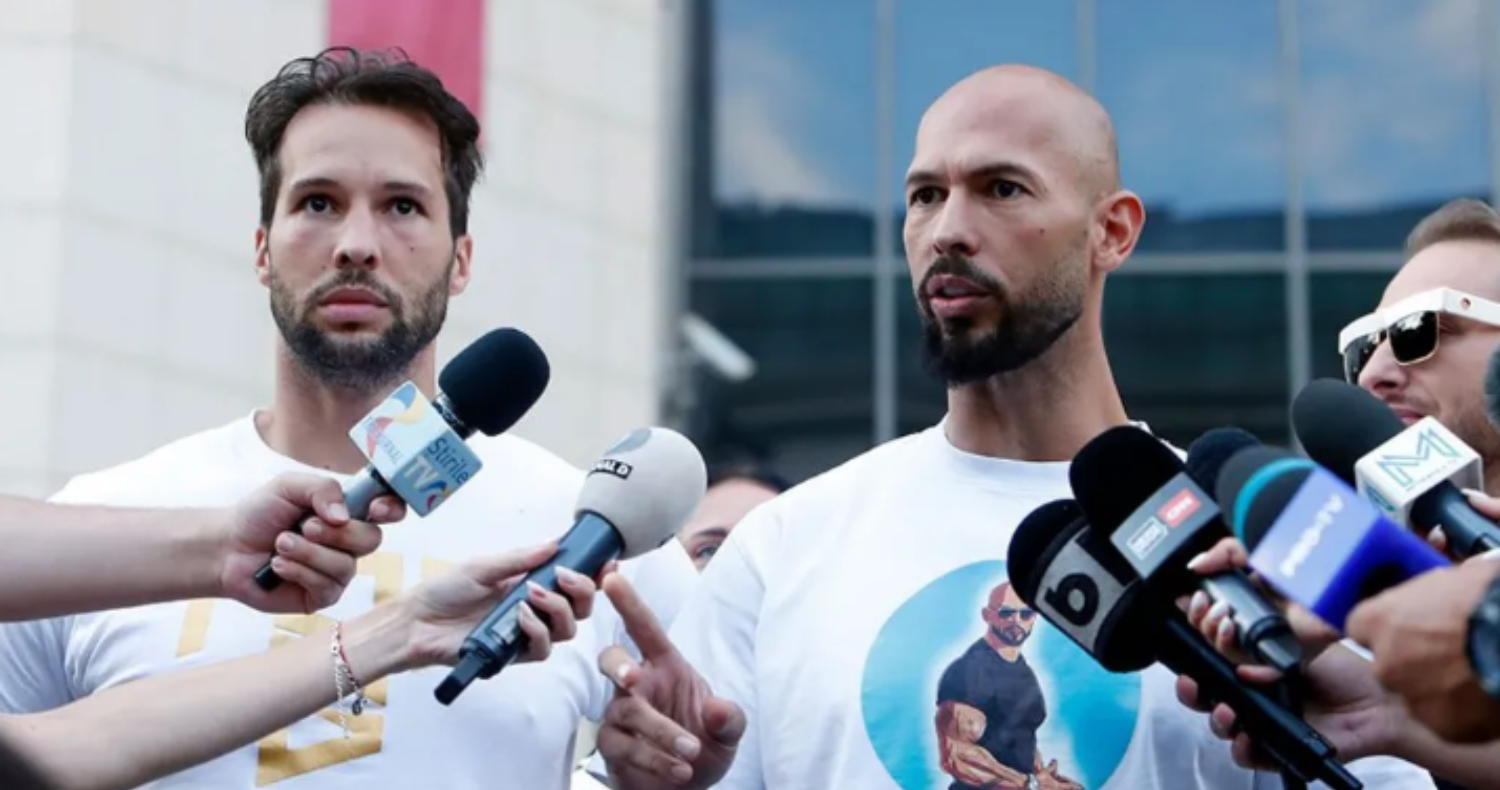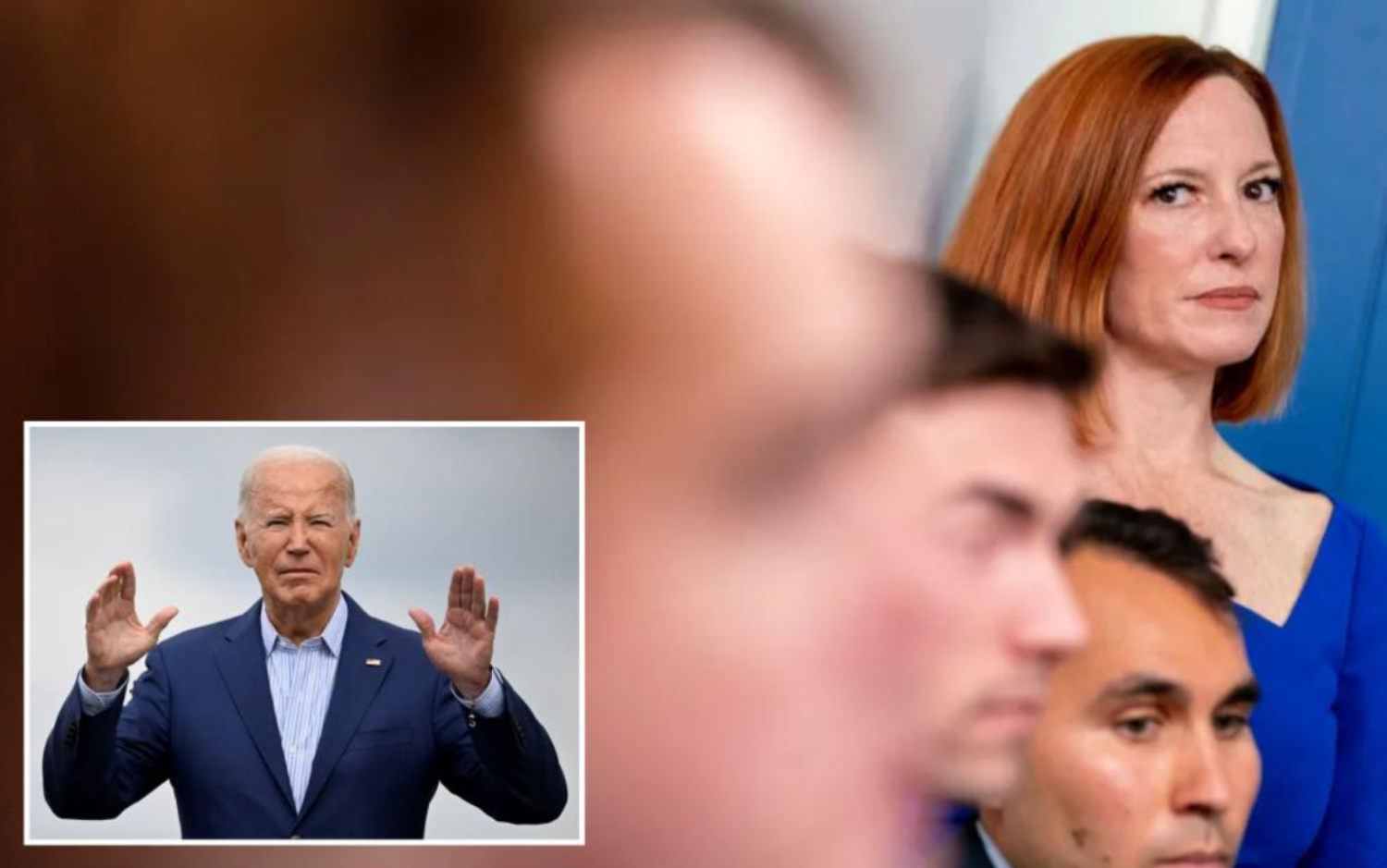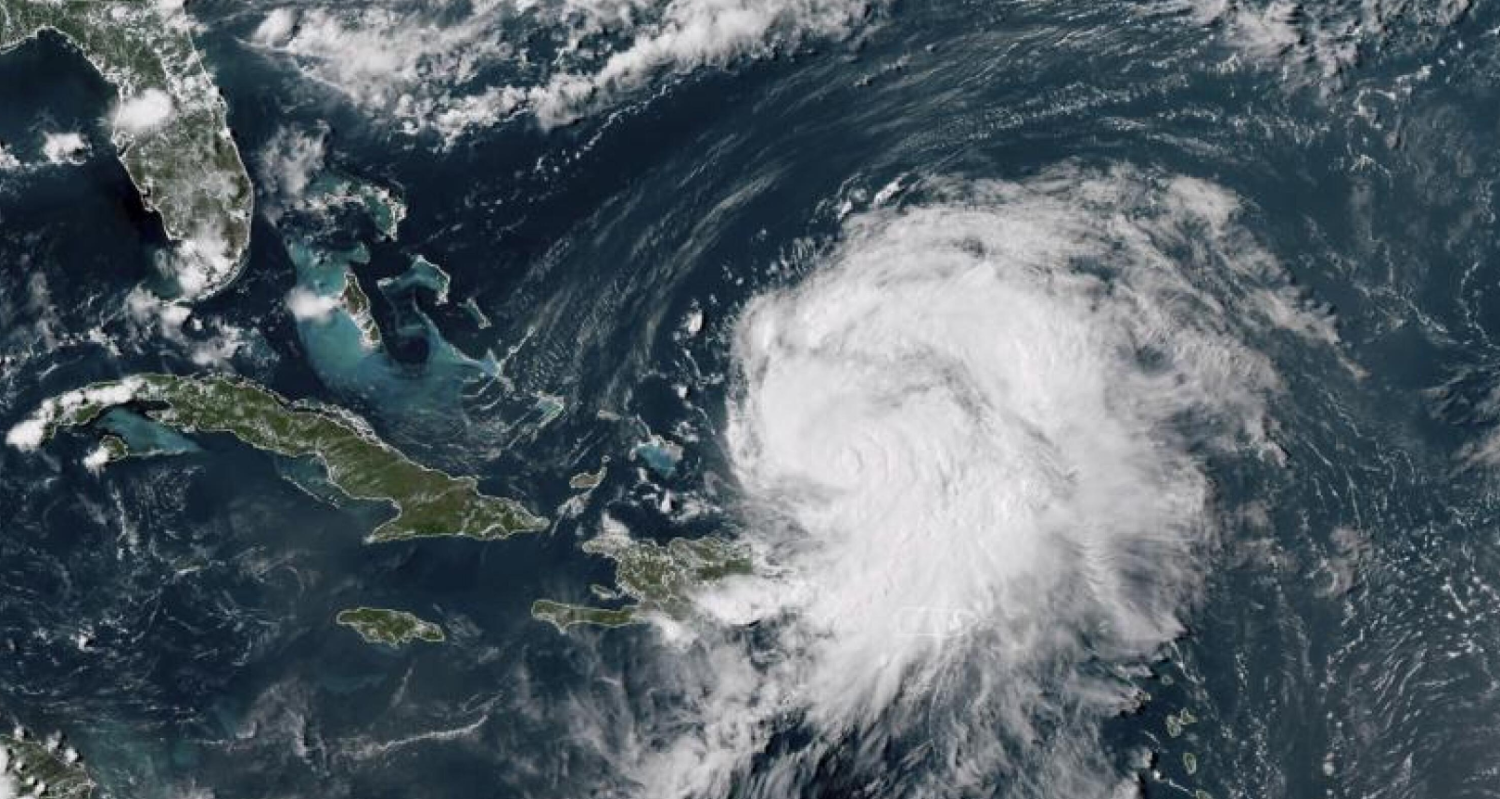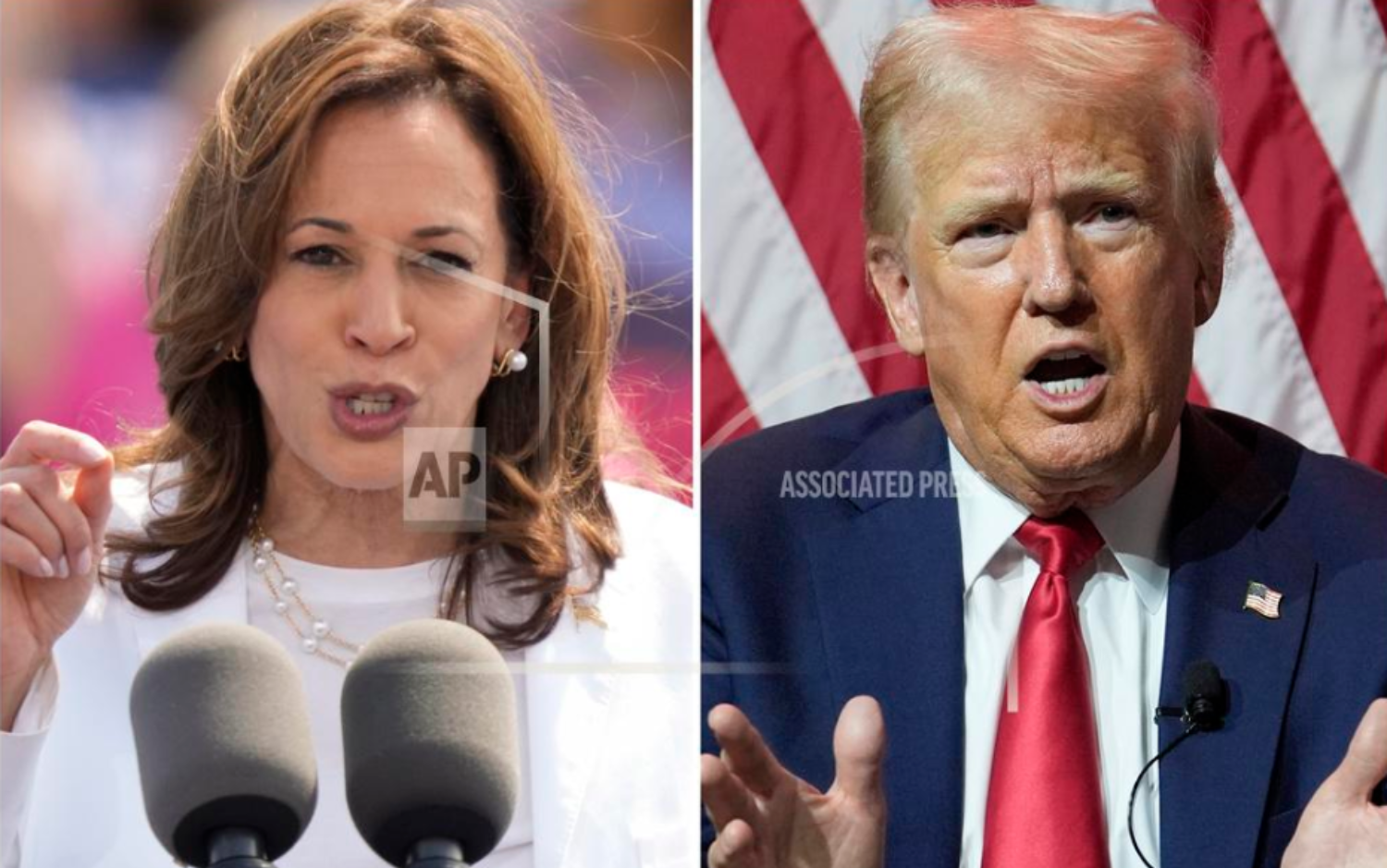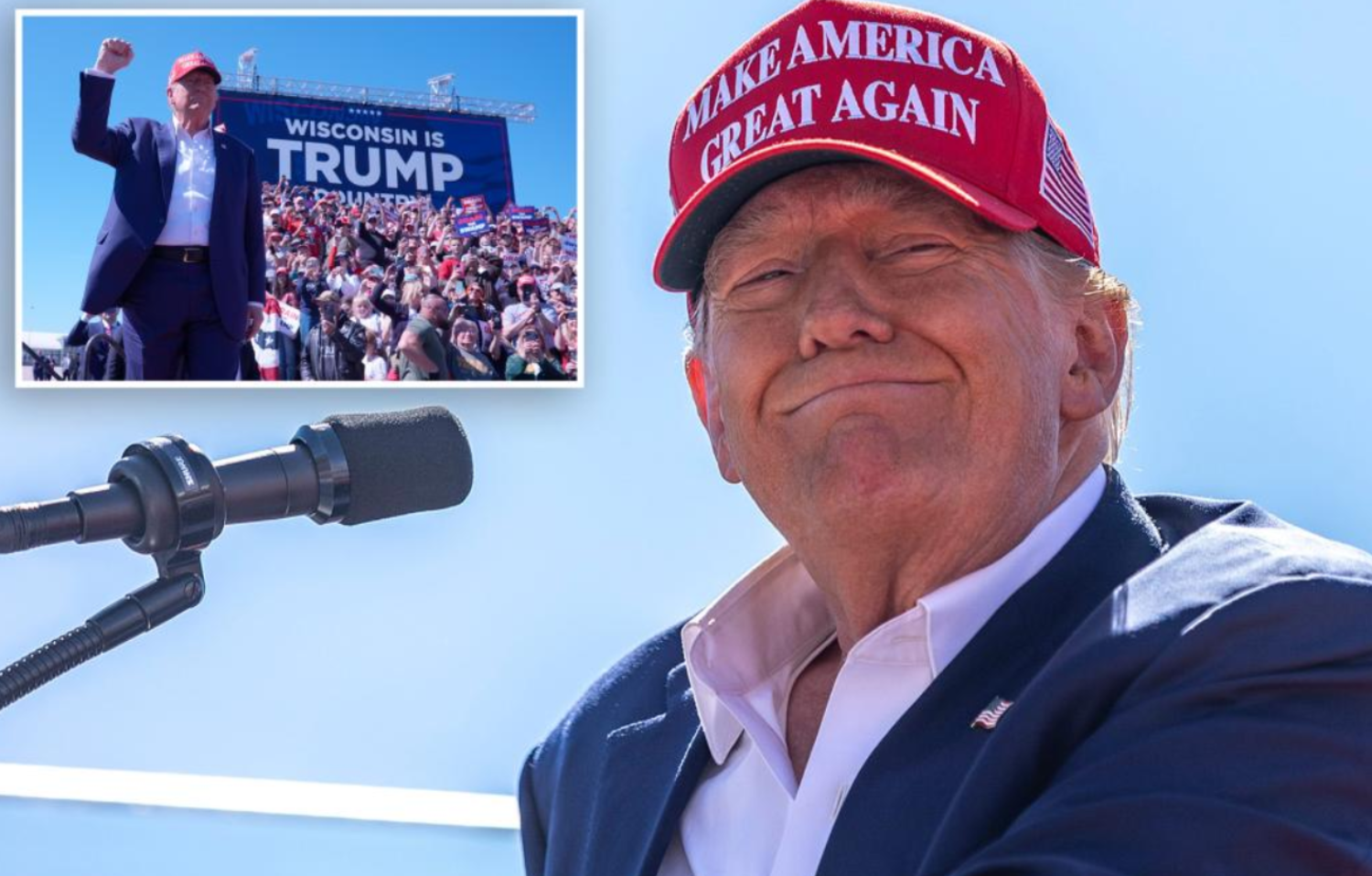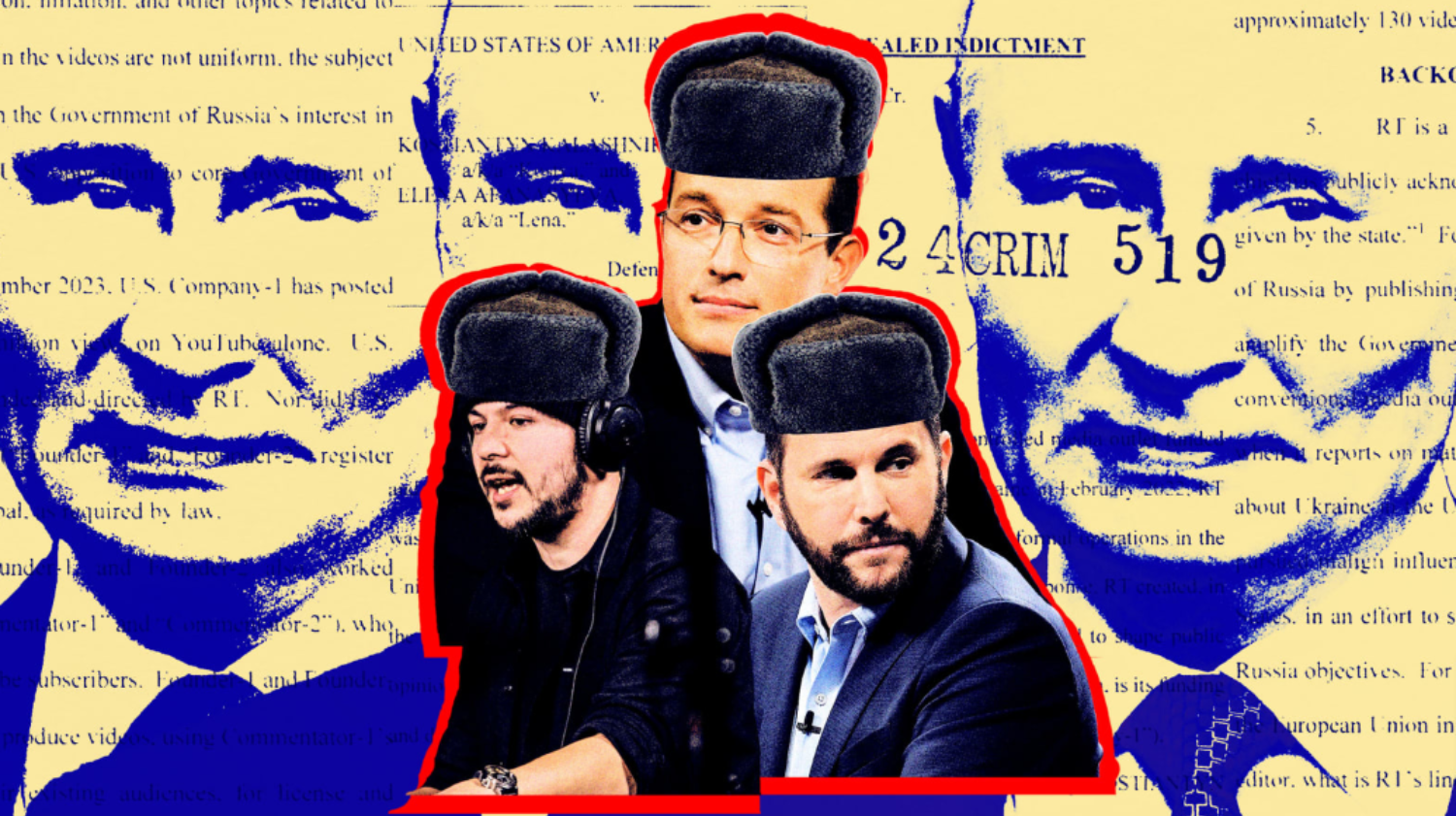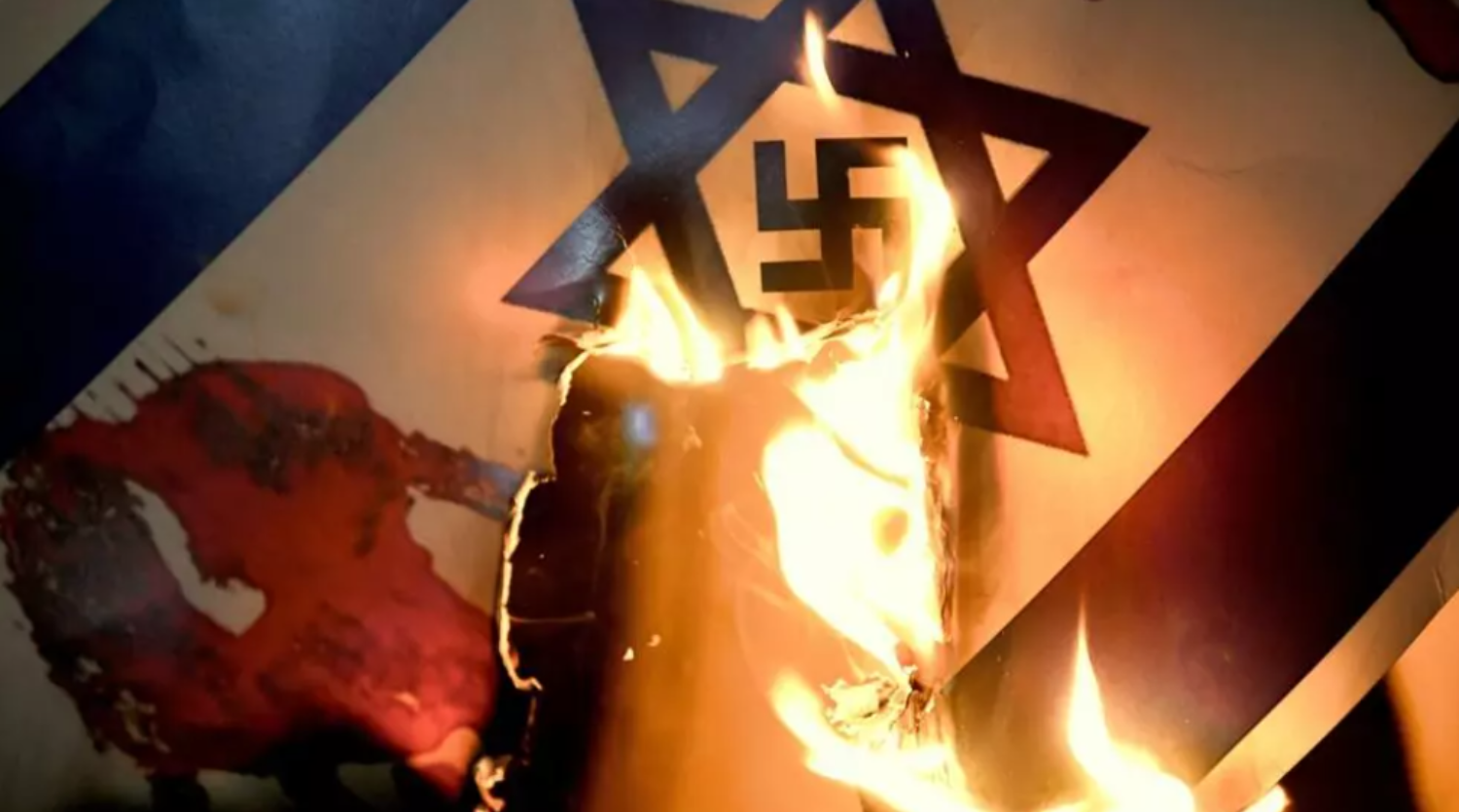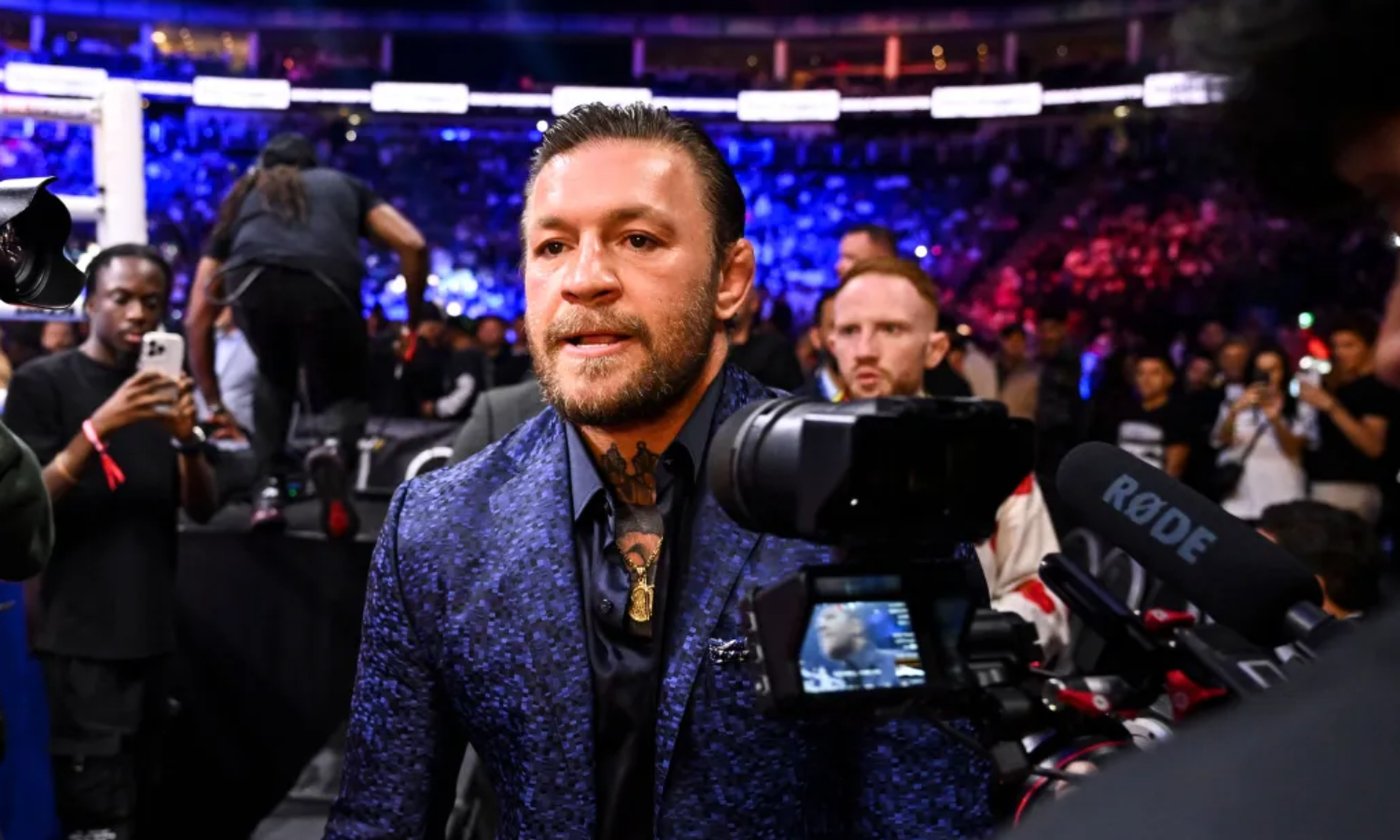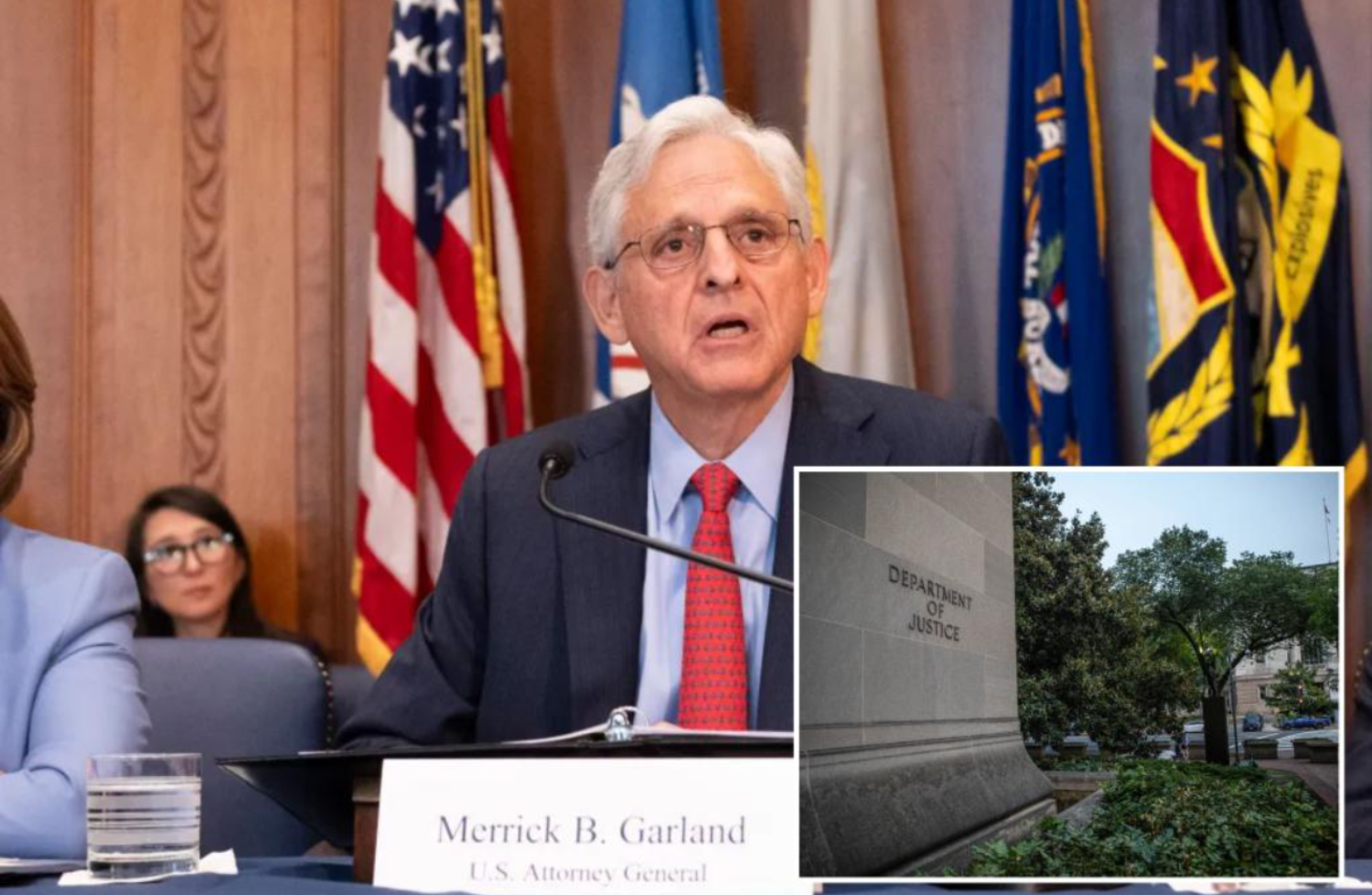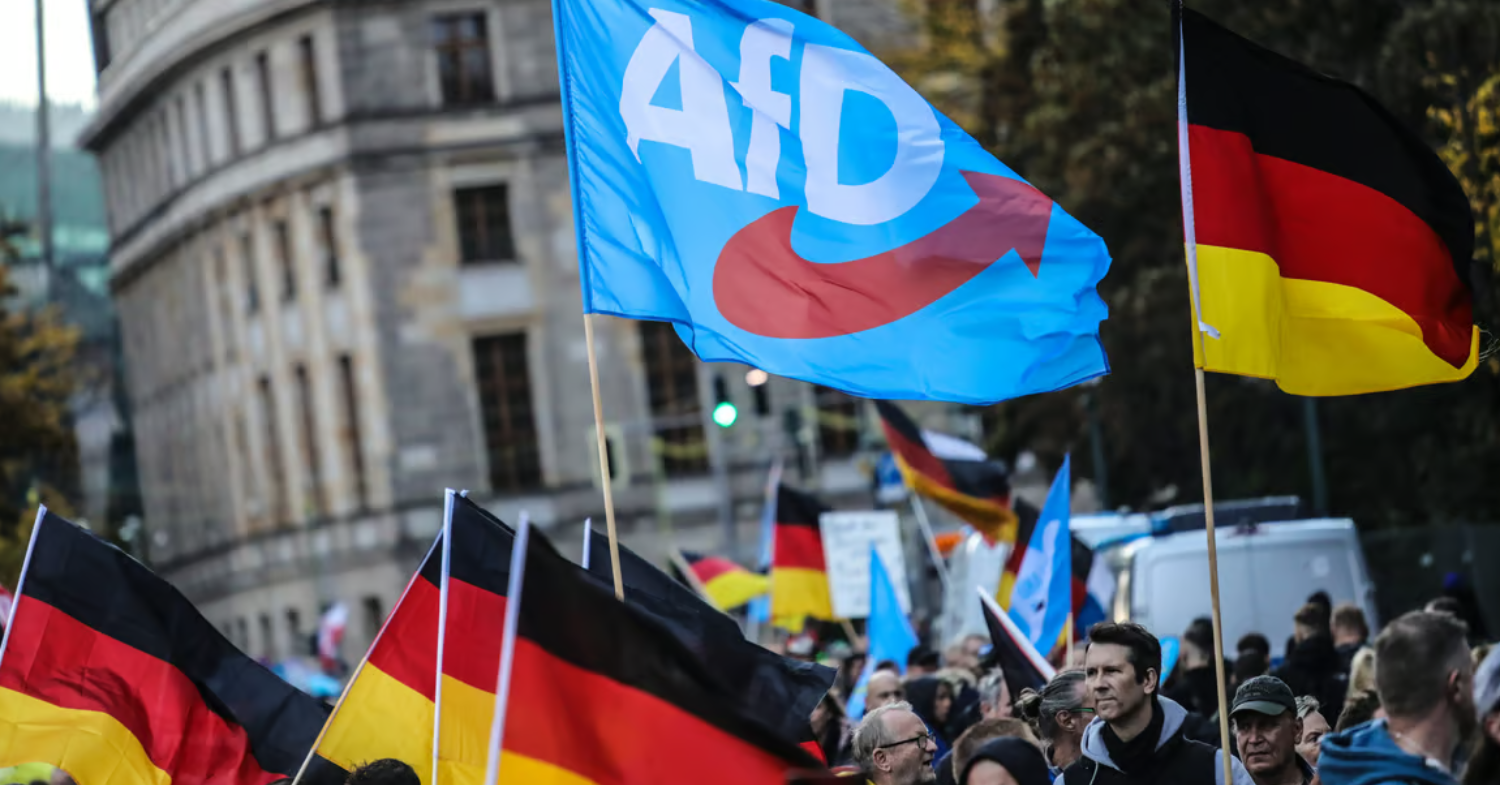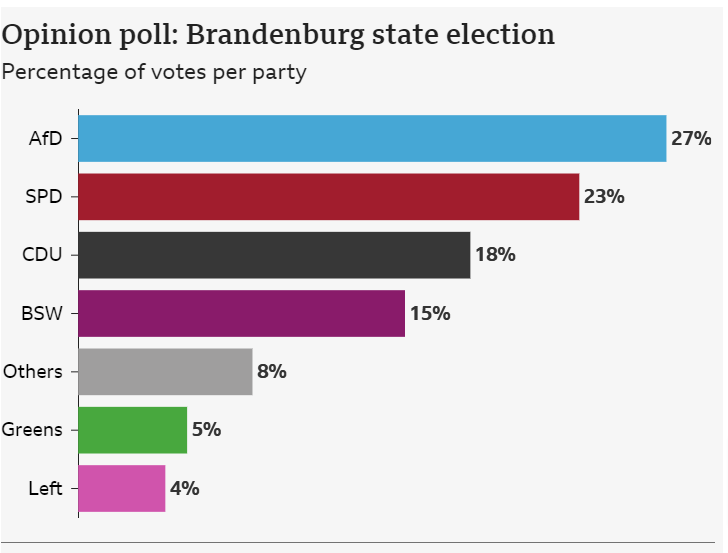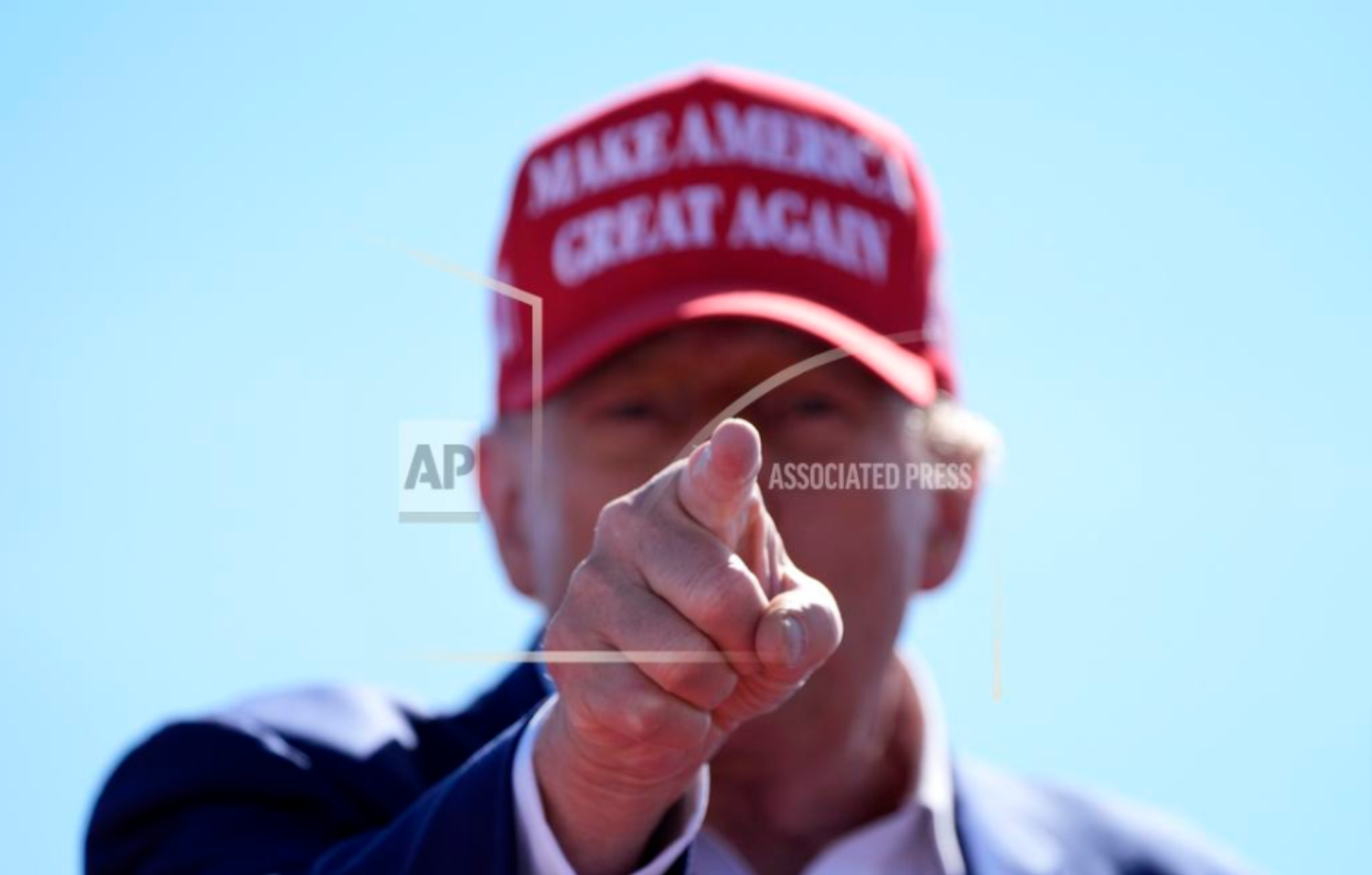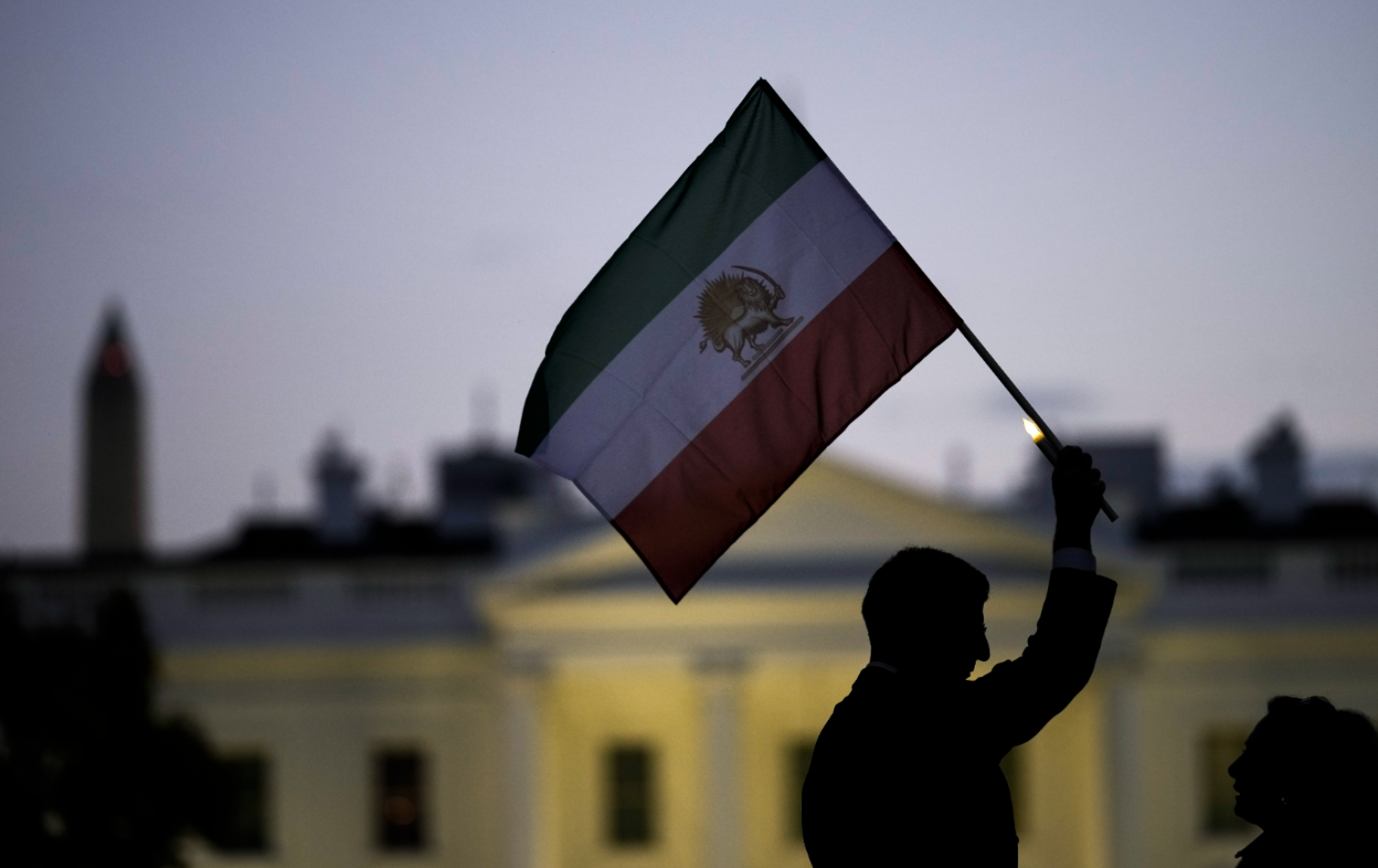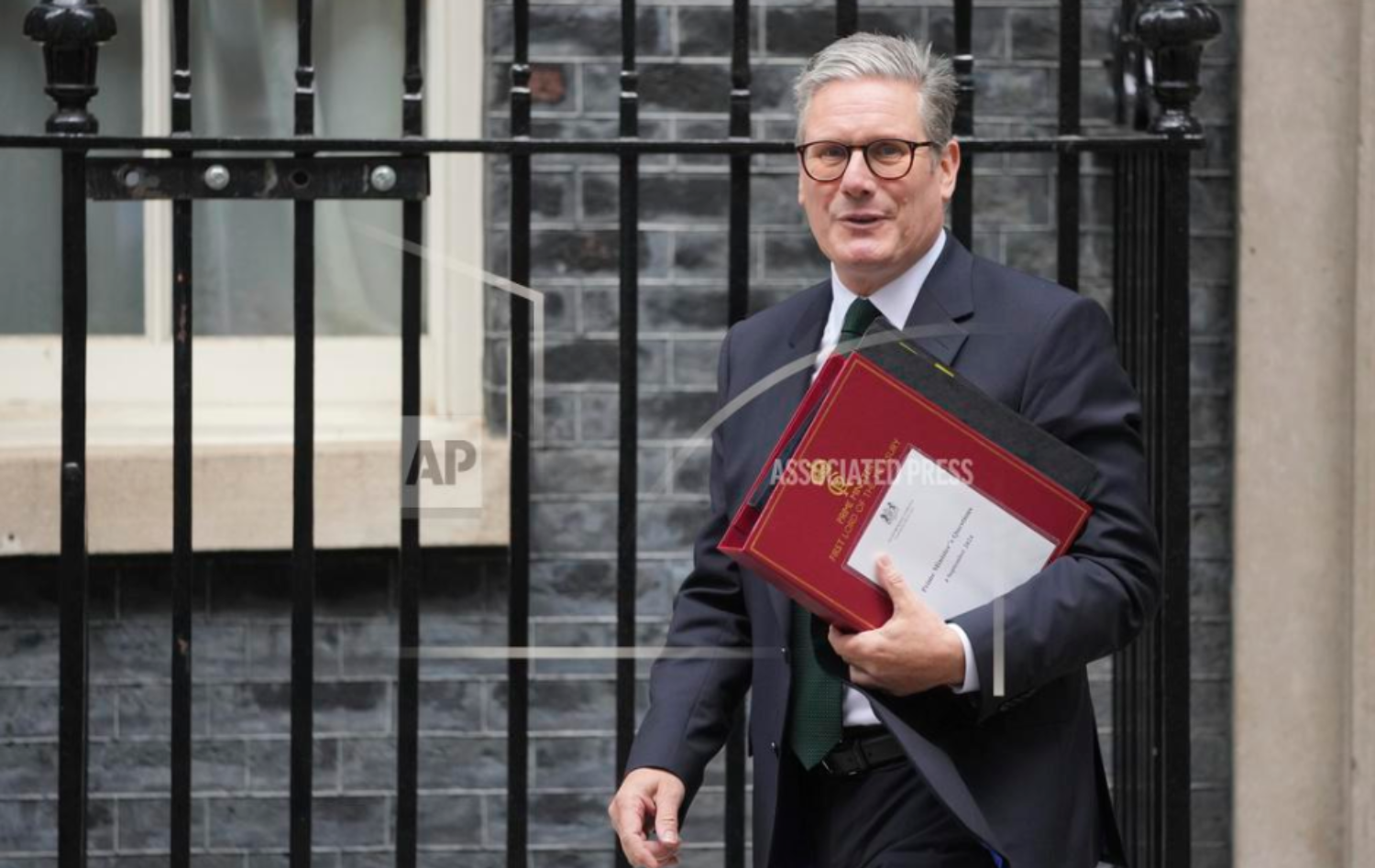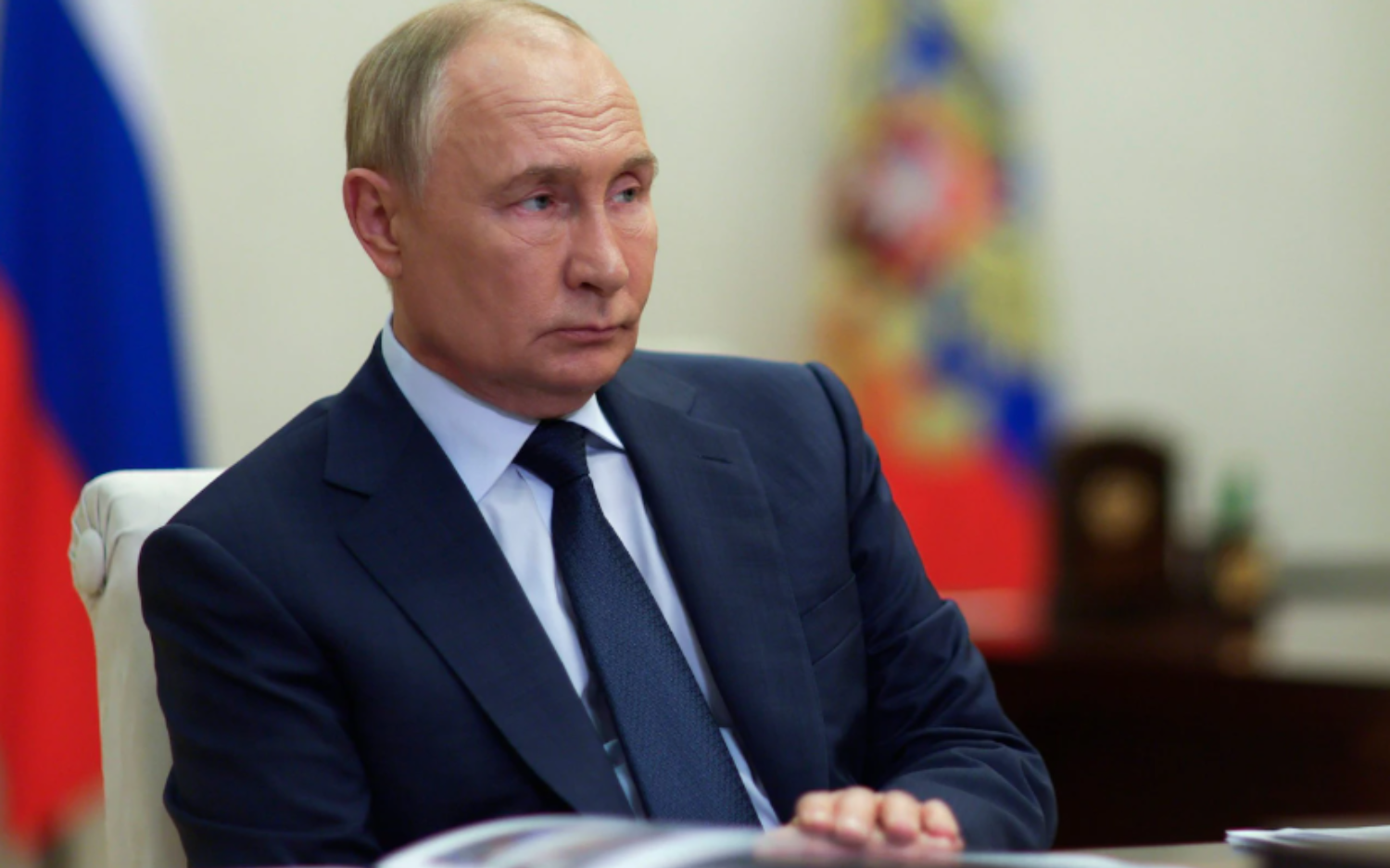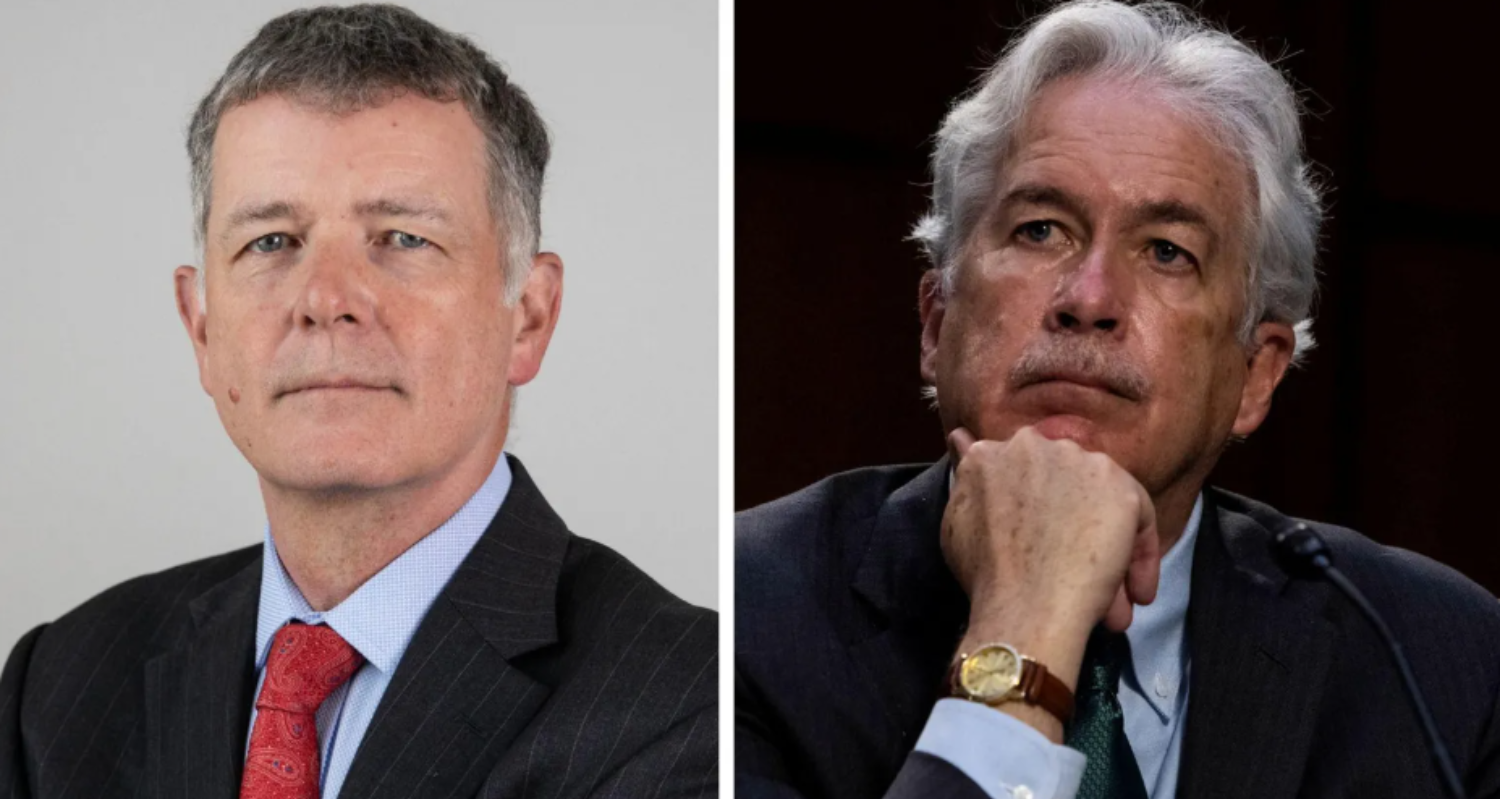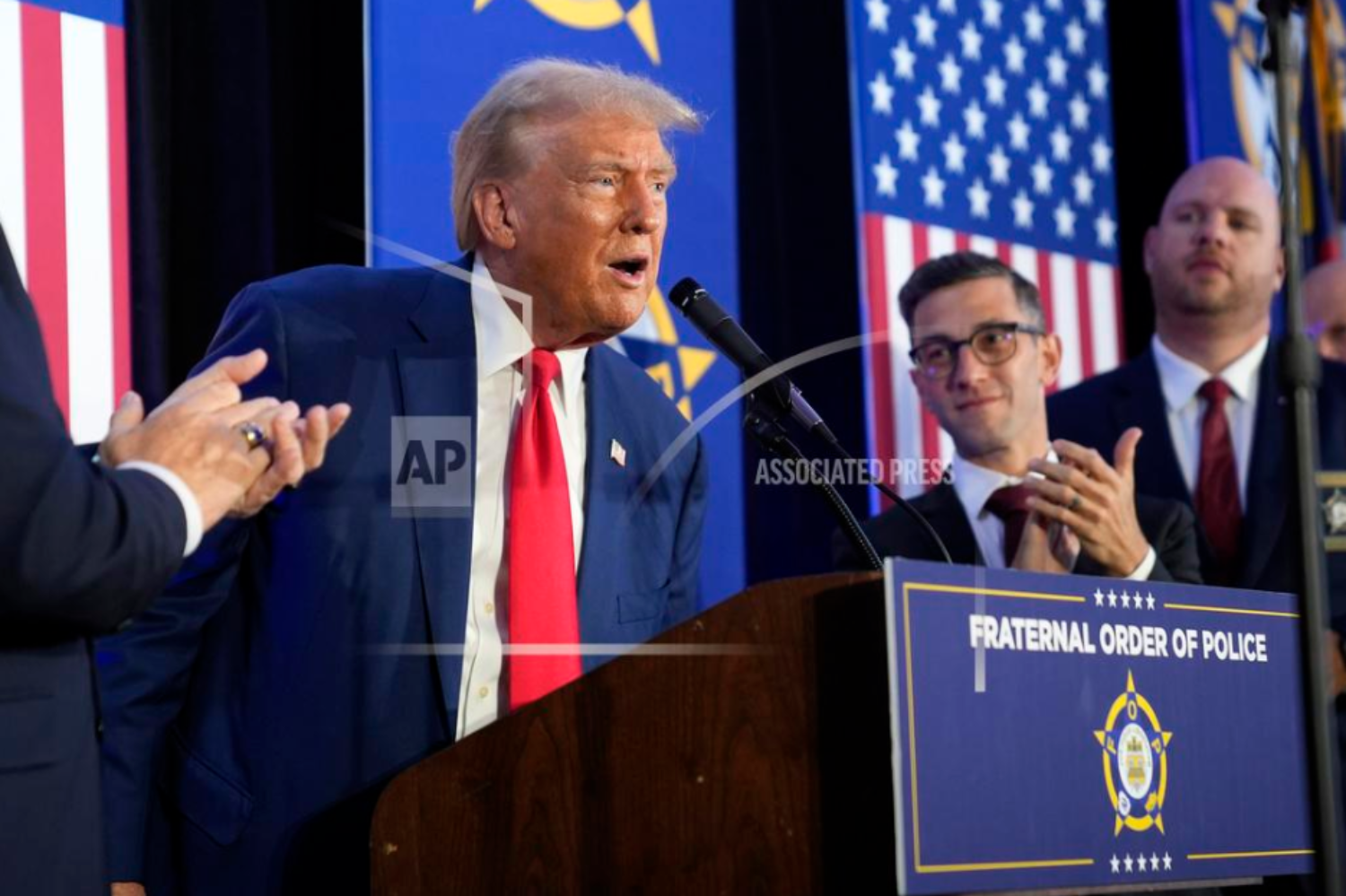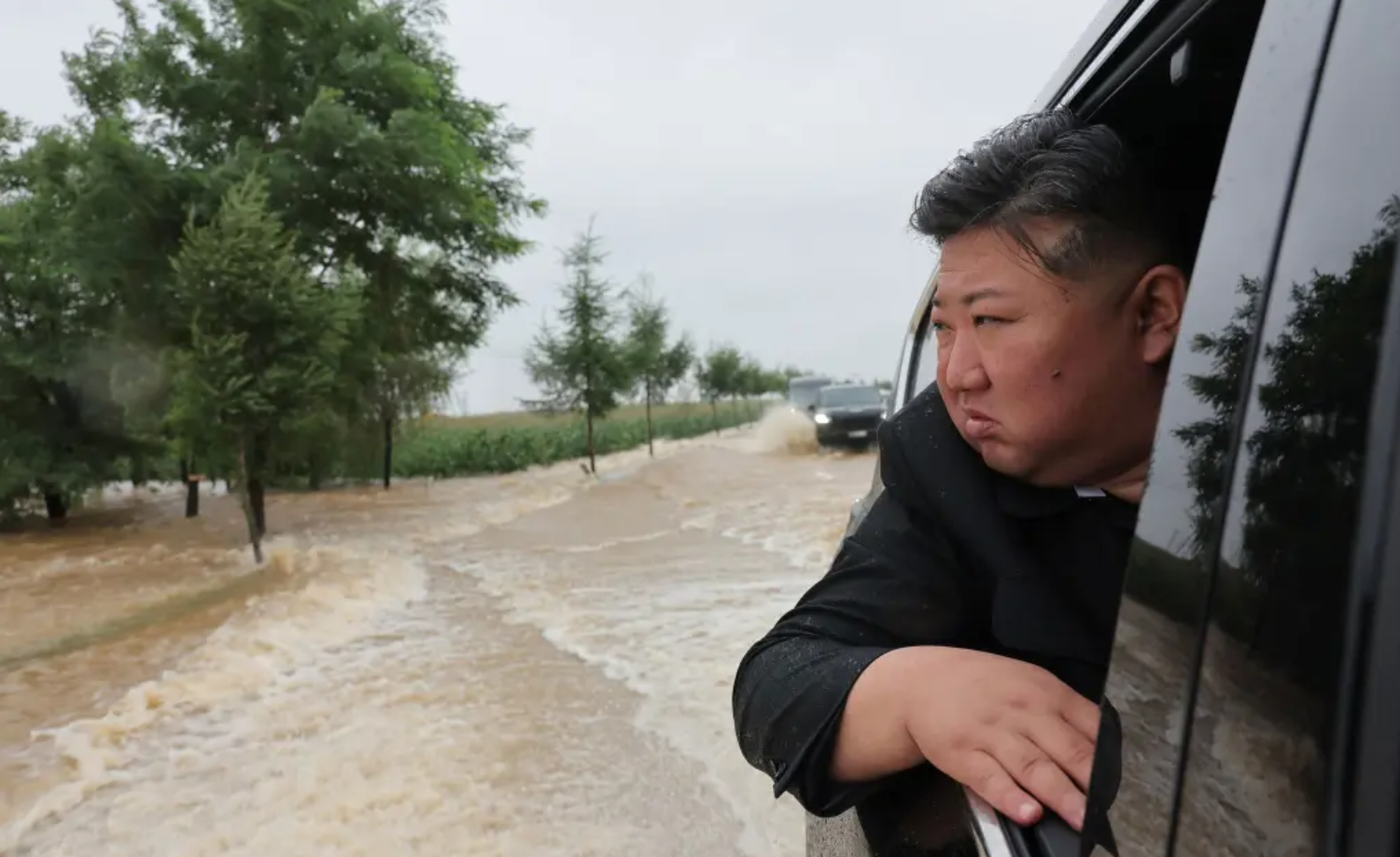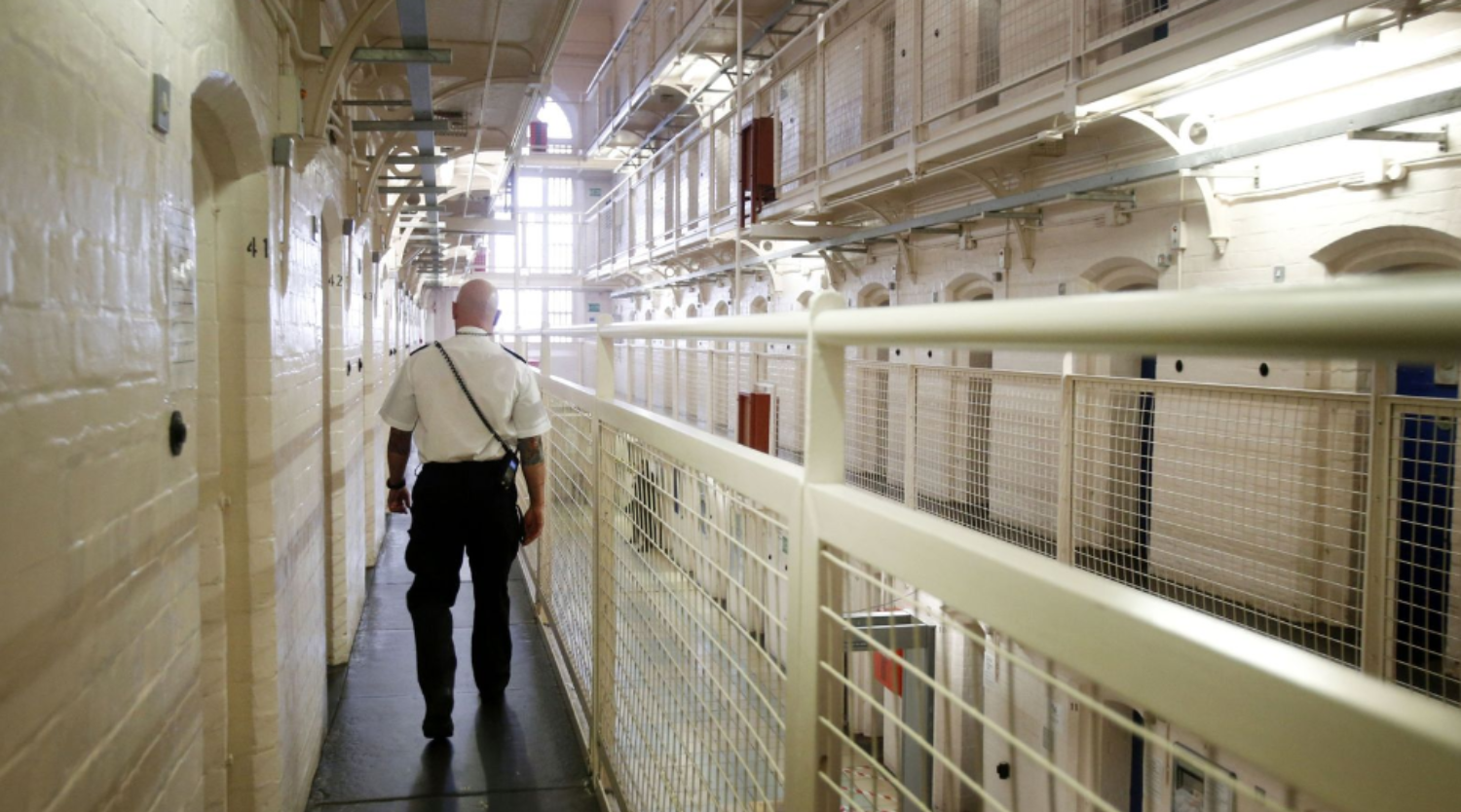-
Posts
10,734 -
Joined
-
Last visited
Content Type
Events
Forums
Downloads
Quizzes
Gallery
Blogs
Everything posted by Social Media
-
Australian police are collaborating with international authorities to track down a man suspected of pouring boiling coffee on a nine-month-old baby in Brisbane. The shocking and seemingly random attack, which took place last month, has left the infant with severe burns to his face and limbs, sparking widespread outrage across the nation. The incident occurred on August 31, when the baby was at a picnic with his family in a suburban park. According to witnesses, a “strange man” approached the family and suddenly emptied a flask of boiling coffee onto the child before fleeing the scene on foot. The infant was quickly given first aid by those nearby, and an off-duty nurse rushed him to her apartment to cool his burns under cold water. Despite their efforts, the baby suffered dramatic injuries that have already necessitated multiple surgeries, and his parents anticipate a long and challenging recovery process for their son. Queensland Police have issued an arrest warrant for a 33-year-old man wanted on charges of acts intended to cause grievous bodily harm, a crime that carries a possible life sentence. However, in a frustrating twist for the investigation, the main suspect managed to flee the country before authorities could apprehend him. The man reportedly left Australia from Sydney airport just six days after the attack and only 12 hours before police were able to confirm his identity. Det Insp Paul Dalton, who is leading the investigation, described the case as one of the "most complex and frustrating" of his career. He confirmed that police are aware of the suspect's name and the country to which he has fled but are withholding this information to avoid compromising their ongoing investigation. The suspect is described as an “itinerant” worker who has traveled to Australia multiple times since 2019, with addresses in both New South Wales and Victoria. Authorities believe the man is knowledgeable about "police methodologies" and has been engaging in "counter-surveillance activities" to evade capture. The baby’s parents, speaking to the media on Monday, expressed their devastation upon learning that the suspect had escaped the country. "It sounds like they were very, very close in catching him, and this obviously means that we're going to have to wait who knows how long to get justice for our son," the baby’s mother told the Australian Broadcasting Corporation. Despite the horrific ordeal, the boy’s father noted that their son is in "good spirits," though additional skin graft surgeries may still be necessary. In the wake of the attack, a GoFundMe page set up to support the baby boy and his family has raised over A$150,000 ($100,000 £76,000), reflecting the strong public sympathy and desire to help in the face of such a tragic event. As the international manhunt continues, authorities remain committed to bringing the suspect to justice and providing some measure of closure to the distraught family. Credit: BBC 2024-09-10 Get the ASEAN NOW daily NEWSLETTER - Click HERE to subscribe
-
Two women have come forward with disturbing allegations against controversial social media influencer Andrew Tate, claiming they were raped and strangled by him. These women, whose accounts are unrelated to the ongoing Romanian case, shared their traumatic experiences with the BBC. Additionally, for the first time, a third woman has alleged that she was raped by Andrew Tate's younger brother, Tristan Tate. The Tate brothers, Andrew, 37, and Tristan, 36, are currently facing serious charges in Romania, including human trafficking, forming an organized group to exploit women, and in Andrew Tate's case, rape. If convicted, they could face over a decade in prison. Both brothers vehemently deny the charges. Despite being under house arrest in Romania, Andrew Tate is also under investigation for new allegations, including having sex with a minor and trafficking underage individuals. The two British women, who are not involved in the Romanian case, provided detailed accounts of alleged rape and sexual violence by Andrew Tate, dating back over a decade when he lived in Luton. One of the women, referred to as Anna (a pseudonym), recounted her horrifying experience in 2013. After a few dates with Tate, she returned to his house where he suddenly assaulted her. “He started kissing me... and he just looked up at the ceiling and said, ‘I’m just debating whether I should rape you or not.’ Out of the blue, he just grabbed me by the throat, smashed me to the back of the bed, strangling me extremely hard,” Anna recalled. She says that Tate then raped her and afterward sent her disturbing text messages and voice notes, one of which said, “Am I a bad person? Because the more you didn’t like it, the more I enjoyed it.” In another message, he wrote, “I love raping you.” Tate even tried to dismiss the strangulation as a joke, texting, “Are you seriously so offended I strangled you a little bit?” When asked by the BBC about these messages, Andrew Tate declined to comment. Anna reported the alleged attack to Bedfordshire Police in 2014, and two other women made similar allegations. However, in 2019, the Crown Prosecution Service decided there was insufficient evidence to bring charges against Tate. Another woman, identified as Sienna (a pseudonym), shared a similar story. She described meeting Tate in Luton a decade ago and having what she considered a consensual one-night stand. However, during a subsequent encounter, she alleges that Tate attacked her, putting his hands around her throat during sex, causing her to lose consciousness. When she regained consciousness, she realized he was still having sex with her. “I was absolutely terrified,” she said. “I just remember gasping for air... It was rape.” The morning after, Sienna noticed she had a bloodshot eye, which she later learned is a common injury in domestic abuse cases involving strangulation. A friend of Sienna confirmed to the BBC that she had told him about the incident at the time and that he saw her eye injury. Sienna did not report the assault to the police, a decision she now regrets. BBC Panorama is aware of five women in the UK who have said they were strangled by Andrew Tate during sex. When interviewed by the BBC last year, Tate denied ever strangling or having non-consensual sex with any woman, stating, “I know I've never hurt anybody. It's not in my nature to hurt people.” Prosecutors in Romania allege that the Tate brothers were trafficking women into the country for exploitation. The case file includes statements from women who describe feeling controlled by the brothers, with some women not allowed to leave the house alone. Credit: BBC 2024-09-10 Get the ASEAN NOW daily NEWSLETTER - Click HERE to subscribe
-
MSNBC host and former White House press secretary Jen Psaki recently opened up about her concerns for President Joe Biden during what she described as a "heartbreaking" summer. Speaking at the Texas Tribune Festival in a conversation with The Atlantic writer Mark Leibovich, Psaki shared her personal reaction to the infamous June debate that raised questions about Biden’s ability to serve another term. Psaki, who worked closely with Biden during her time as his press secretary, admitted that her initial reaction while watching the debate was not focused on the political implications. “Well, watching it, my first reaction was not, ‘Oh my gosh, Trump is going to win the election.’ That was not my reaction. I care about him as a human being. And my first reaction was, I do care about him a lot, was like, ‘Is he OK?’” she said. Her concerns were rooted in her personal connection with Biden. “Honestly, it was like, ‘Is he OK? And I don’t say that because I was feeling like I was going to go on Twitter and be alarmist, but I care for him as a person,” Psaki continued. “I was worried about him as a person.” Following the debate, media and Democratic allies quickly called for Biden to step aside, as many were alarmed by his performance, which left him appearing confused, unsure, and with a raspy voice. These concerns about his age and mental acuity resonated with many, despite Biden initially dismissing the debate as just a "bad night." However, he eventually decided not to seek re-election, instead endorsing Vice President Kamala Harris as his successor. Psaki, who was the MSNBC host on air when the news of Biden’s decision broke, admitted that she became “emotional” while informing viewers. She reflected on the challenging period that followed the debate, describing it as an “incredibly difficult roller coaster” for Americans. “The summer, I think, was heartbreaking and difficult for so many people. People who loved him, people who were fearful of Trump winning, people who loved Harris, people with all sorts of emotions within this country,” Psaki said. She emphasized that her concerns were not just those of a political commentator but also of someone who experienced the events on a personal level. “And as much as I was on television talking about this, I experienced that too, as a human being,” she added. Psaki concluded her tenure as Biden’s press secretary in May 2022 and has since become a prominent figure on MSNBC, where she continues to provide political analysis. Credit: Vice 2024-09-10 Get the ASEAN NOW daily NEWSLETTER - Click HERE to subscribe
-
In a year where meteorologists predicted a potentially historic hurricane season, the Atlantic Ocean has been unusually quiet, making history for an unexpected reason. For the first time in over half a century, the Atlantic has gone through the late summer without a single cyclone, a time when multiple storms would typically be churning. Phil Klotzbach, a renowned meteorologist, and others in the field had anticipated a flurry of hurricanes, yet as weeks passed without any significant activity, the silence became more unnerving. Even those outside the meteorology world began to ask, “Where are all the hurricanes?” Klotzbach, who leads one of the most respected hurricane season outlooks, found himself considering a midseason update in late August, an acknowledgment that this year’s forecast might be off the mark. He ultimately decided against it, hoping for a new system to emerge over Labor Day weekend. However, the anticipated storm never formed. The Atlantic’s unexpected calm has left meteorologists wrestling with confusion and criticism, as they had confidently predicted an active season. “Everyone was going big,” Klotzbach said, reflecting on the widespread expectations for more than two dozen storms. This season's quietness stands in stark contrast to the dynamic Pacific typhoon season and the record-breaking heat experienced across the Northern Hemisphere, which led to devastating wildfires, floods, and scorching temperatures. Even though meteorologists can identify some factors contributing to this lull, they struggle to understand why these factors have dominated the weather patterns that would typically fuel intense storms. Many of those who warned the public to prepare for a dangerous season now find themselves in the awkward position of almost rooting for storms to avoid losing public trust. Klotzbach, who accurately predicted the devastating impact of Hurricane Beryl in July, initially felt reassured in his forecast, which called for several storms of Beryl's magnitude. But as time passed without any new storms, he was taken by surprise. “It’s definitely taken me by surprise,” he admitted. “I think any meteorologist being honest would say the same.” The ingredients for a busy hurricane season seemed to be present. Ocean temperatures across the Atlantic have been extraordinarily warm for over a year, providing ample fuel for storms. A La Niña climate pattern, which typically produces favorable conditions for Atlantic storms, has been building for months. “This season is looking to be an extraordinary one,” NOAA Administrator Rick Spinrad said back in May. But despite these conditions, the past month has been eerily quiet. This unusual calm could hint at future trends. The Intergovernmental Panel on Climate Change has suggested that climate change might make hurricanes less frequent, even as it increases the likelihood of those that do form becoming more intense. So far, this year’s atmosphere has been too stable for storm development, with unusual warming observed in the upper layers of the troposphere. Additionally, many potential storms have fizzled out as they drifted from African monsoon clouds into the Atlantic, further north than usual, outside the zone most conducive to storm formation. This shift is something meteorologists have never had to account for before. “It’s kind of hard to predict something in the system that you’ve never seen before,” said Matthew Rosencrans, NOAA’s lead seasonal hurricane forecaster. Meteorologists are now grappling with the possibility of a busted forecast, a scenario they all hope to avoid. Seasonal forecasts, which are made months in advance, lack the precision of daily weather predictions. They can assess the likelihood of storms but cannot predict specific anomalies like the unexpected position of the African monsoon. “These are factors that are not fully understood by anyone,” said Jon Porter, chief meteorologist for AccuWeather, which recently downgraded its own hurricane season predictions. Forecasters like Klotzbach remain cautious yet hopeful. “There’s still 60 percent of the hurricane season left to go,” Rosencrans noted. But as doubts grow, so does public skepticism. If hurricanes fail to materialize, the effect could be lasting, with people potentially disregarding future warnings due to the “cry wolf” effect. Tobias Vorlaufer, a researcher at the Leibniz Centre for Agricultural Landscape Research, emphasized the importance of careful communication to maintain public trust. For Klotzbach, transparency is key. He knows that his dire forecasts have heightened public attention, and with that comes the risk of losing credibility. “That’s not something you want to lose,” he said. Credit: WP 2024-09-010 Get the ASEAN NOW daily NEWSLETTER - Click HERE to subscribe
-
With less than two months remaining before Election Day, Vice President Kamala Harris and former President Donald Trump are in a dead heat, according to a new national survey. The poll, conducted by The New York Times and Siena College, shows Trump holding a slight edge with 48 percent of likely voters' support, while Harris closely trails at 47 percent. This slim margin falls within the poll’s margin of error, indicating a highly competitive race. The results mirror those of a July survey from the same sources, which was conducted shortly after President Joe Biden announced his decision to step down from his reelection bid. Despite the time that has passed since Biden's exit, the race remains virtually unchanged, signaling that the contest between Harris and Trump is shaping up to be one of the closest in recent memory. The timing of the poll is particularly significant, as it comes just days before the highly anticipated ABC News debate between Harris and Trump, the only scheduled debate between the two candidates thus far. For Harris, the debate could prove to be a crucial moment in her campaign. According to the poll, 28 percent of likely voters expressed a desire to learn more about Harris, compared to only 9 percent who felt the same way about Trump. This suggests that while Trump is a well-known figure with a solidified base, Harris still has an opportunity to sway undecided voters and define her candidacy in the final stretch of the campaign. However, the poll also highlights some challenges Harris may face. Nearly half of the likely voters surveyed, 47 percent, perceive Harris as too liberal, which could be a stumbling block in winning over moderate and independent voters. On the other hand, 32 percent of likely voters view Trump as too conservative, though this perception does not seem to have significantly dented his support base. Interestingly, this survey is one of the few national polls of high quality that did not show Harris receiving a boost in support following her swift nomination and the subsequent events at the party’s nominating convention in Chicago last month. The New York Times notes that this is the first time in about a month that Trump has shown at least a nominal lead in a major nonpartisan national survey. The New York Times’ polling averages still show Harris with a slight edge over Trump, 49 percent to 47 percent. However, the importance of The New York Times’ survey in shaping public perception and influencing campaign strategies cannot be overstated, as it has historically played a significant role in American politics, often driving both fundraising efforts and media coverage. The poll surveyed 1,695 registered voters between September 3 and 6, with a margin of error of +/- 2.8 percentage points among likely voters. As Election Day draws closer, the nation’s attention is likely to intensify on this closely contested race, with every development potentially tipping the scales. Credit: Politico 2024-09-09 Get the ASEAN NOW daily NEWSLETTER - Click HERE to subscribe
-
Former President Donald Trump vowed on Saturday to restore free speech in America, claiming that it is currently under threat. Speaking before a crowd of 15,000 supporters at a rally in Mosinee, Wisconsin, Trump arrived in his private jet, dramatically touching down in his Boeing 757, dubbed “Trump Force One.” If re-elected, Trump promised to sign an executive order prohibiting any federal employee from collaborating to limit speech. He also vowed to terminate any federal bureaucrat who has engaged in domestic censorship under the current administration. Trump’s appearance marked his fourth visit to Wisconsin during his campaign but his first trip to the predominantly rural and deeply Republican central region of the battleground state. During his speech, Trump also took aim at Vice President Kamala Harris, criticizing her for her immigration policies, which he argued have exacerbated a national migrant crisis, contributed to rising crime rates, and imposed heavy financial burdens on taxpayers. Trump and Harris are set to face off in a high-stakes presidential debate on Tuesday, adding to the already tense atmosphere of the campaign. Harris, like Trump, has been a frequent visitor to Wisconsin this year, a key battleground state where four of the last six presidential elections have been decided by narrow margins. With Biden having withdrawn his re-election bid in July, recent polls show Harris and Trump locked in a tight race for Wisconsin’s crucial electoral votes. Democrats are focusing on Wisconsin as a critical “blue wall” state that they need to secure victory. In the 2020 election, Biden won Wisconsin by a slim margin of just under 21,000 votes, while Trump carried the state in 2016 by nearly 23,000 votes. Both parties are aware of the importance of the state, and the outcome of this year’s election could once again hinge on a razor-thin margin. Credit: NYP 2024-09-09 Get the ASEAN NOW daily NEWSLETTER - Click HERE to subscribe
-
The recent Department of Justice indictments targeting employees of RT, Russia's state-controlled propaganda outlet, have been met with open derision and mockery in Moscow. The charges, which revealed a plot to funnel millions of dollars to a MAGA media group in the United States, were brushed off by Russian officials, who responded with a mix of jeers and veiled admissions. Margarita Simonyan, the editor-in-chief of RT, led the charge on her Telegram channel, where she posted a series of mocking messages. "Ptooey, they finally woke up!" Simonyan wrote, mocking US authorities for taking so long to uncover RT's activities. The indictment, unsealed this week, alleged that prominent right-wing influencers like Tim Pool, Dave Rubin, and Benny Johnson were secretly funded by Russian state media employees to produce favorable content. Among those caught up in the indictment were the founders of Tenet Media, widely believed to be Lauren Chen and Liam Donovan. Following the indictment, Blaze Media CEO Tyler Cardon announced that Chen had been fired, stating, "Lauren Chen was an independent contractor whose contract has been terminated." Simonyan, in her posts, noted that the accused influencers were denying any knowledge of the source of the funds they received. "Bloggers, of course, deny everything, but what else can they do?" she commented. She also praised the efforts of her team, writing, "Excellent work, team!" and dismissed the US reaction as “paranoia,” without bothering to deny the accusations. This attitude is consistent with Simonyan's past behavior, as she has frequently boasted about RT's role in destabilizing the United States. During several appearances on state television, she has proudly spoken of creating "an entire empire of covert projects" aimed at spreading Russian propaganda under various disguises. In 2022, Simonyan admitted, “When they [Western governments] conducted carpet bombing against us and destroyed everything, denying us any access to disseminating information, we came to our senses and started to penetrate their defenses using partisan trails: under other names, with different people, in new ways. I won’t disclose the rest here.” While Simonyan feigned indifference, other prominent figures in Russian state media appeared more concerned. Andrey Lugovoy, a State Duma member and former KGB officer found responsible for the 2006 radiation poisoning of Alexander Litvinenko in London, expressed confusion over how RT managed to transfer $10 million to US influencers. The host of the state TV show "Evening With Vladimir Solovyov," Vladimir Solovyov, was visibly shaken by the indictment of his friend Dimitri Simes, who has often appeared on his show to criticize US policies and justify Russia's actions in Ukraine. Solovyov and his fellow propagandists even suggested that Tucker Carlson might be the next target of US authorities and urged the Russian government to offer asylum to all involved. Karen Shakhnazarov, Director General of Mosfilm, praised Simes as a “hero who made his choice” and is now paying the price. Shakhnazarov sarcastically noted, “Margo Simonyan is making American presidents left and right,” and speculated that the charges against RT and Simes were politically motivated, aiming to weaken “our Donald” in the run-up to the US presidential election. Russian state media figures have long admitted their support for Donald Trump, often referring to him affectionately as "Trumpushka." The recent indictments have done little to shake this allegiance, with prominent Russian commentators continuing to express their hope for Trump’s return to power, seeing it as beneficial to Russia’s interests. As Shakhnazarov bluntly put it, "Trump is a direct path to civil war in the United States." Credit: Daily Beast 2024-09-09 Get the ASEAN NOW daily NEWSLETTER - Click HERE to subscribe
-
The surge in anti-Semitism following Hamas's attack on October 7, which triggered the ongoing war in Gaza, is evoking memories of the tense period leading up to World War II. This alarming rise in hostility toward Jews is spreading fear across global Jewish communities, as highlighted by key European and US officials. "We have seen a tsunami of anti-Semitism really rolling across Europe and the globe," stated Katharina von Schnurbein, the European Commission's coordinator on combating anti-Semitism and fostering Jewish life. Speaking to AFP in Geneva after a private workshop at the United Nations, von Schnurbein expressed her concerns about the unsettling parallels between current events and Europe's darkest historical periods. She described a disturbing wave of anti-Semitic actions, including firebomb attacks on synagogues, Stars of David being spray-painted on Jewish homes, and Jewish students facing violence on university campuses. "We are seeing a situation that we had hoped we would never see again," she said. During the UN workshop, hosted by the United States, officials underscored a significant spike in anti-Semitic incidents since last October. In France, the number of anti-Semitic incidents quadrupled last year, reaching 1,676 cases. Denmark experienced a similar trend, with 121 reported incidents in 2023—an astonishing increase of 1,244 percent compared to the previous year’s nine cases. "We see these spikes everywhere," von Schnurbein remarked. The war's impact has extended beyond the battlefield, inciting protests on numerous university campuses across the US and beyond. Some demonstrations have been accused of fostering anti-Semitic sentiments and creating a hostile environment for Jewish students. Columbia University in New York recently released a report highlighting a "surge in violent anti-Semitic and xenophobic rhetoric" and called for improved training and reporting to safeguard Jewish students. Deborah Lipstadt, the US envoy against anti-Semitism who also participated in the UN workshop, stressed the distinction between criticizing Israeli policies and harboring anti-Semitic views. "Criticism of Israeli policies (or) the Israeli government... is not anti-Semitism," Lipstadt emphasized. She pointed out that if criticizing Israel equated to anti-Semitism, then the hundreds of thousands of Israelis protesting in the streets would be labeled anti-Semites, which is obviously untrue. However, Lipstadt also noted that both sides are guilty of conflating criticisms of Israel with anti-Semitism. She cited incidents like the defacement of an Anne Frank statue in Amsterdam with "Free Gaza" slogans and Jewish students being pursued by demonstrators who claimed they were only targeting them for their political views. Lipstadt voiced her concern over the "normalisation of anti-Semitism," which has sparked a pervasive sense of fear within the Jewish community. She noted that Jewish students are now choosing universities based on perceived levels of hostility, and Jewish men are concealing their yarmulkes under baseball caps. Michele Taylor, the US ambassador to the UN Human Rights Council in Geneva, expressed particular alarm over the violent online rhetoric, especially threats targeting Jewish women. Taylor highlighted a chilling case from France where a 12-year-old Jewish girl was brutally gang-raped, illustrating the harrowing extremes of anti-Semitic violence. The workshop underscored the urgency of countering anti-Semitism through global guidelines that urge governments and political leaders to swiftly denounce such hate whenever it surfaces. "Anti-Semitism is a scourge on our collective humanity," stated UN rights chief Volker Turk in a video address. "We all have a duty to eliminate it." Turkey's Erdogan recently called for Islamic alliance against Israel. "The only step that will stop Israeli arrogance, Israeli banditry, and Israeli state terrorism is the alliance of Islamic countries," Erdogan said at an Islamic schools' association event near Istanbul. “Israel will not stop in Gaza,” he claimed. “If Israel continues in this manner, it will set its sights elsewhere after occupying Ramallah. The turn will come for other countries in the region. It will come for Lebanon, Syria. They will set their eyes on our homeland between the Tigris and Euphrates." It is unclear what Erdogan was referring to, as Israel has made no such declarations. Credit: AFP | Reuters 2024-09-09 Get the ASEAN NOW daily NEWSLETTER - Click HERE to subscribe
- 63 replies
-
- 10
-

-

-

-
Retired MMA star Conor McGregor has announced his intention to run for President of Ireland in 2025. Known for his outspoken personality and history in the octagon, McGregor’s declaration has raised eyebrows and stirred debate about the qualifications necessary to lead a nation. The 36-year-old fighter took to social media to express his dissatisfaction with Ireland’s current political landscape, proclaiming himself the “only logical choice” to steer the country. “I would have all the answers the people of Ireland seek from these thieves of the working man,” McGregor boldly stated. His announcement, however, has been met with skepticism, as many question the seriousness and suitability of a former fighter aspiring to the highest office in the land. McGregor’s presidential ambitions are not entirely new, as he has hinted at political aspirations in the past. However, the seriousness of his bid is now being put to the test. While his confidence and charisma have served him well in the world of MMA, leading a nation requires more than bravado and a fighting spirit. The prospect of a fighter-turned-president is a reminder that voters should be cautious of candidates who see politics as a fallback plan when other career paths falter. As McGregor steps into the political ring, Ireland watches with a mix of curiosity and concern. Whether his campaign is a genuine effort to bring change to the country or merely another chapter in the colorful saga of Conor McGregor remains to be seen. Credit: Vice 2024-09-09 Get the ASEAN NOW daily NEWSLETTER - Click HERE to subscribe
-
A Pakistani man has been arrested in connection with a chilling ISIS-inspired plot to target a Jewish center in Brooklyn, New York, with the intent to kill “as many Jewish people as possible,” federal prosecutors announced on Friday. The suspect, identified as 20-year-old Muhammad Shahzeb Khan, allegedly aimed to carry out the attack on the one-year anniversary of Hamas’ October 7th assault on Israel. Khan, who resided in Canada, was apprehended on Wednesday as he attempted to cross the US border to execute his plan. His arrest was confirmed by Attorney General Merrick Garland, who commended the collaboration between US and Canadian law enforcement. "As I said to Canada’s Minister of Public Safety yesterday, we are deeply grateful to our Canadian partners for their critical law enforcement actions in this matter,” Garland stated. He further emphasized that “Jewish communities — like all communities in this country — should not have to fear that they will be targeted by a hate-fueled terrorist attack.” According to the federal complaint, Khan, who also goes by the alias “Shahzeb Jadoon,” had begun sharing ISIS propaganda on social media in 2023, publicly expressing his support for the terror organization. During conversations with undercover FBI agents, Khan revealed that he and another ISIS supporter based in the United States were plotting attacks on Jewish centers across the country. They were actively seeking assault rifles and other materials needed to carry out their planned atrocities. Khan indicated in his messages that the dates of October 7th and October 11th were ideal for targeting Jewish people. He wrote, “Oct 7th and oct 11th are the best days for targeting the jews” because “oct 7 they will surely have some protests and oct 11 is yom.kippur.” He pointed to New York as a prime location for their attack, noting, “New york is perfect to target jews” because it has the “largest Jewish population In america” and asserted that “even if we don’t attack a[n] Event[,] we could rack up easily a lot of jews.” He chillingly claimed, “we are going to nyc to slaughter them,” and even sent a photograph of the intended target, though the specific location was not disclosed by authorities. Khan began his journey toward the US border in three separate vehicles but was intercepted by federal authorities near Ormstown, Quebec, just 12 miles from the US border. If convicted of the charges against him, which include attempting to provide material support and resources to ISIS, Khan could face up to 20 years in prison. The case is currently being overseen by the Manhattan federal prosecutor’s office, though it remains unclear when Khan will be extradited to the United States to face these serious charges. Credit: NYP 2024-09-09 Get the ASEAN NOW daily NEWSLETTER - Click HERE to subscribe
-
The rise of far-right politics in eastern Germany shows no signs of slowing down. Ingolf, a former conservative voter in the tiny village of Jämlitz near the Polish border, expresses a sentiment shared by many: “If the old parties had done their jobs properly, then the AfD would not exist.” This reflects a sense of disillusionment among eastern Germans, or “Ossis,” who feel looked down upon by the rest of the country. The far-right Alternative for Germany (AfD) recently won the most votes in regional elections in Thuringia and is predicted to do the same in Brandenburg’s upcoming election. In Jämlitz and neighboring Klein Düben, support for the AfD has surged, reflecting broader political unrest. Ingolf, who recalls better educational standards during the days of the German Democratic Republic, is frustrated with Germany’s stagnant economy and rising immigration, comparing recent far-right riots in England to “civil war-like conditions”—a narrative fueling fears of potential clashes in Germany’s multicultural communities. “That’s not what we want here in Germany,” he adds, reflecting the general unease in his quiet village. Support for the AfD extends beyond domestic issues. The party’s stance on Ukraine, particularly its call to stop sending weapons to Kyiv, has resonated with many in the east. Yvonne, another local resident, criticizes the financial aid being sent abroad, saying, “This is our tax money that is sent abroad. We have enough things to fix in our own country.” She is also considering supporting the new Sahra Wagenknecht Alliance (BSW), another anti-establishment party that opposes arms supplies to Ukraine. While Wagenknecht’s “left-wing conservatism” has propelled her party into the spotlight, critics argue that it represents yet another populist, pro-Putin movement undermining key aspects of German foreign policy. Yvonne’s hesitation to take a firm stance on the Ukraine war illustrates a broader regional ambivalence, particularly among older generations who grew up learning Russian during the GDR years. For them, pacifism remains a deeply ingrained value, especially given Germany’s history with two World Wars. Yvonne expresses concerns about potential escalation: “Poland is not big, and we are then the first ones to go when the tanks come across.” In local elections, 57.5% of voters in Jämlitz backed the AfD, while across the wider district, support was also unusually high at 43.7%. The appeal of the AfD in eastern Germany persists despite the party being officially classified as right-wing extremist in three states. In Thuringia, the AfD recently secured 36% of the vote among those under 30, underscoring its growing influence among younger voters. Despite being viewed as a far-right extremist group, its supporters vehemently reject this label. When visiting a local lake that has been transformed from an open-cast coal mine, most people were reluctant to discuss politics, highlighting the sensitive nature of these conversations in the area. Katrin, a local resident who disapproves of the AfD, sums up the confusion surrounding the party’s popularity: “Half the people here didn’t vote for the AfD,” she reminds us. She finds it difficult to comprehend why so many of her neighbors are drawn to far-right ideology, despite relatively stable living conditions. “Life is actually good for people in the community,” she says, attributing the AfD’s rise to a misguided “grass-is-greener” mentality. Mainstream parties, including those in Chancellor Olaf Scholz’s coalition, are struggling to understand or effectively respond to the success of the AfD and BSW, which are polling at 18% and 8% nationally, respectively. As these fringe movements gain traction, the traditional, consensus-driven nature of German politics is increasingly under threat. Credit: BBC 2024-09-09 Get the ASEAN NOW daily NEWSLETTER - Click HERE to subscribe
-
A recent report has accused the BBC of violating its editorial guidelines more than 1,500 times during its coverage of the Israel-Hamas conflict, revealing a pattern of alleged bias against Israel. The investigation, led by British lawyer Trevor Asserson, analyzed four months of BBC content across various platforms, including television, radio, online news, podcasts, and social media. The report highlighted that Israel was associated with terms like genocide significantly more than Hamas, raising questions about the BBC's impartiality. Former BBC executive Danny Cohen has called the findings an "institutional crisis" and advocated for an independent inquiry into the broadcaster's coverage of the war. This call was echoed by Jewish groups such as the Campaign Against Antisemitism and the National Jewish Assembly, who criticized the BBC for its perceived lack of neutrality. The Asserson report, which analyzed approximately nine million words of BBC content, identified 1,553 instances where the corporation allegedly breached its guidelines on impartiality, accuracy, editorial values, and public interest. The findings noted that the BBC often portrayed Israel as a militaristic and aggressive state while downplaying acts of terrorism by Hamas. Specific accusations were made against prominent BBC journalists, including Jeremy Bowen and Lyse Doucet, who were alleged to have shown sympathy towards Hamas and minimized the severity of the group’s attacks. The report was particularly critical of the BBC's Arabic channel, which it claimed to be among the most biased in its coverage of the Israel-Hamas conflict. It identified instances where BBC reporters had made public statements supporting Hamas, which were not disclosed to viewers. The analysis also found that Israel was associated with war crimes far more frequently than Hamas, despite the latter openly publicizing acts that could constitute such crimes. Public criticism of the BBC intensified following the October 7 massacre in southern Israel, when Hamas killed around 1,200 people and took over 250 hostages. Despite Hamas being officially recognized as a terrorist organization, the report found that the BBC labeled the group as such only 3.2% of the time during the period analyzed. This perceived reluctance to clearly identify Hamas as terrorists drew widespread condemnation, including from MPs and Jewish community leaders. Calls for an independent review of the BBC's coverage have grown louder, with several prominent figures questioning the broadcaster's adherence to its own editorial standards. Sir Oliver Dowden, the shadow deputy prime minister, expressed concern that the BBC’s alleged failure to maintain impartiality could damage its global reputation. Julia Lopez, the shadow culture secretary, warned that any perceived bias undermines public trust in the BBC, particularly in a media landscape increasingly fraught with misinformation. Further criticism came from Lord Austin, who described the BBC’s stance as failing to meet the standards of impartiality that justify its public funding. The Campaign Against Antisemitism has called for fundamental reform of the broadcaster, arguing that a transparent public inquiry is necessary to address the issues raised by the report. Trevor Asserson, a long-standing critic of BBC bias, has launched a new organization, Campaign for Media Standards, aimed at scrutinizing UK media for similar biases. He emphasized that the BBC's deviation from its responsibility as a public service broadcaster to deliver unbiased news, especially in its Arabic content, raises questions about its suitability for continued public funding. Credit: Sunday Telegraph 2024-09-09 Get the ASEAN NOW daily NEWSLETTER - Click HERE to subscribe
-
Former President Donald Trump has intensified his immigration rhetoric, warning that the removal of migrants from the United States would be a "bloody story" if he is reelected in the upcoming election. Speaking at a campaign rally in Mosinee, Wisconsin, Trump’s remarks aligned closely with the Republican National Committee’s newly unveiled 2024 platform, which advocates for aggressive immigration enforcement and mass deportations. During the rally, Trump declared, “And ya know getting them out will be a bloody story,” referring to his plans for large-scale removal of undocumented immigrants. He emphasized that these individuals “should have never been allowed to come into our country. Nobody checked them.” His comments, which underscore the hardline stance he intends to take on immigration if reelected, were captured in a video posted on X (formerly Twitter) by the account @KamalaHQ. The video quickly gained traction, amassing over 260,000 views. The Republican National Committee (RNC) formalized its new immigration policy priorities on July 15 during the Republican National Convention in Milwaukee. The platform positions the GOP firmly against the “open-border policies” they claim have led to a surge in illegal immigration, drug trafficking, and migrant crime. Among the key points are plans to seal the border, carry out the largest deportation operation in American history, and crack down on foreign drug cartels and gang violence. The platform also promises to reinstate policies from Trump’s previous administration, such as the "Remain in Mexico" policy, and to complete the border wall. Ohio Senator JD Vance, Trump’s vice-presidential pick, echoed Trump’s sentiments at the convention, emphasizing the necessity of deporting individuals who have violated U.S. laws. Vance’s campaign has been particularly explicit, asserting that “We need to deport every single person who invaded our country illegally.” Trump has claimed that between 15 and 20 million people could be deported under his plan, though official estimates place the number of undocumented migrants in the U.S. at around 11 million. Vance’s aggressive stance on immigration, however, contrasts with his personal life. His wife, Usha, is the daughter of Indian immigrants, whom he has praised for enriching the country. This has sparked some criticism from extremist figures within Trump’s Make America Great Again (MAGA) movement, questioning the authenticity of Vance’s views. Additionally, some Republican lawmakers have raised concerns about the feasibility of mass deportations. Representative Tony Gonzales, a Texas Republican representing the largest stretch of the U.S.-Mexico border, has expressed doubts, stating, “You’re not going to round up 10 million people and deport them. It’s simple—you do not have the infrastructure to do that.” The immigration debate has become increasingly heated as both major political parties present starkly different visions ahead of the 2024 election. While Trump and the RNC advocate for a stringent, enforcement-focused approach, Vice President Kamala Harris, the Democratic presidential nominee, has committed to reviving President Joe Biden’s failed bipartisan border security bill. Recent data from the Transactional Records Access Clearinghouse indicates that over 620,000 immigration court deportation cases were filed in fiscal year 2023, resulting in approximately 236,000 removals—a figure surpassing the peak of 187,000 removals during Trump’s administration in 2019. Gonzales has also warned that a complete border shutdown would severely impact industries across the country, emphasizing that “There’s not one industry that is not tied to the U.S.-Mexico border.” Credit: Newsweek 2024-09-09 Get the ASEAN NOW daily NEWSLETTER - Click HERE to subscribe
-
A network of nearly two dozen websites with ties to Tehran is the latest pro-Iranian effort aimed at influencing specific groups of U.S. voters, including minorities and veterans. These fake news websites, identified by a neoconservative think tank, have been spreading disinformation related to the upcoming U.S. elections, raising concerns about Iran's growing interference in the U.S. electoral process. Researchers from the Foundation for Defense of Democracies (FDD) discovered a network of at least 19 websites posing as news or analysis platforms. Among them is “Afro Majority,” a site promoting Vice President Kamala Harris and Black Lives Matter, and “Not Our War,” which criticizes both President Joe Biden and former President Donald Trump, targeting U.S. veterans. These findings, shared exclusively with POLITICO, suggest a coordinated and expansive influence operation. Five of the websites had been previously identified by other researchers, but the FDD findings indicate they are part of a broader, organized effort. All the sites were found to disseminate at least some pro-Iranian fake news or opinion pieces, such as content praising the Iranian government’s response to recent protests on U.S. college campuses against the war in Gaza. While FDD did not directly link these sites to the Iranian government, five had been previously connected to Tehran by other organizations. Microsoft had earlier exposed two of these websites, “Savannah Time” and “Nio Thinker,” as having ties to the Iranian government. Savannah Time masqueraded as a news outlet for Savannah, Georgia, a critical swing state, while Nio Thinker posed as a left-leaning site aimed at reducing support for Trump. OpenAI also flagged these sites, along with others, as part of an “Iranian influence operation.” Another site, “Westland Sun,” was found to target voters in Michigan, another key swing state in the upcoming election. Many of these websites utilized artificial intelligence, including OpenAI’s ChatGPT, to generate their content. Despite being hosted on servers outside the U.S., these websites continue to operate, even those initially identified by Microsoft and OpenAI. FDD has called on the U.S. government to collaborate with international partners to take down these sites. FDD experts informed the Biden administration of their findings before publication but did not specify which agencies were involved. Both the White House and the FBI declined to comment when contacted by POLITICO. Max Lesser, a senior analyst on emerging threats at FDD and one of the report’s authors, stated that the investigation began after Microsoft and OpenAI’s findings were released. “When we first looked at this web hosting server, we saw a lot of domains,” Lesser explained. “We don’t believe that every domain on that server is related, but when we came through and actually looked at each domain on the primary server that was shared between the three domains that Microsoft exposed… we found that these appear to be Iranian influence operations.” Though many of the websites appeared sophisticated at first glance, most lacked author bylines, and those that did often featured nonexistent individuals. Social media accounts linked to the sites were also found to be inoperative. These findings were disclosed weeks after the Trump campaign suffered a hack and leak operation, which U.S. agencies attributed to the Iranian government. The Biden and Harris campaigns were similarly targeted. Additionally, Google Cloud’s Mandiant recently published evidence of an Iranian counterintelligence operation using fake pro-Israeli websites to identify potential dissidents in Iran and abroad who might support Israel. Credit: Politico 2024-09-09 Get the ASEAN NOW daily NEWSLETTER - Click HERE to subscribe
- 1 reply
-
- 2
-

-
Prime Minister Keir Starmer has sharply criticized the Conservative Party, accusing them of leaving the National Health Service (NHS) in an "unforgivable" condition. Starmer stated that the Tories began siphoning funds from the NHS when they came to power in 2010 and implemented a series of "hopelessly misconceived" reforms that have left the health service in a dire state. Starmer’s comments come ahead of a much-anticipated report by former health minister and surgeon Ara Darzi, set to be released this Thursday. The report, expected to be candid and thorough, is likely to reveal the severe challenges currently facing the NHS, particularly in the realm of children's care. Starmer remarked, "Everybody watching this who has used the NHS, or whose relatives have, know that it’s broken, they know that it’s broken, that is unforgivable, the state of our NHS." He further elaborated that the financial cuts imposed on the NHS during the early years of the coalition government from 2010, along with the ill-conceived Lansley reforms, significantly contributed to the current state of the health service. "The money that was taken out of the NHS, particularly in the early years of the coalition from 2010 onwards, the Lansley reforms, which were hopelessly misconceived, and then of course Covid on top of all that, which has put us in this awful position for the NHS," Starmer said. The Lansley reforms brought about a sweeping transformation of the NHS's management and bureaucratic framework, emphasizing competition and market-based approaches to care provision. However, these changes coincided with increasing pressure on hospitals and GPs due to a growing and aging population, along with a significant slowdown in government funding. Health experts have criticized the reforms, describing them as "damaging and distracting" and pointing to their role in exacerbating the crises within the NHS. Lord Darzi’s forthcoming report is expected to expose the full extent of the crisis, particularly in children's healthcare. It is anticipated to highlight the troubling statistics, including 100,000 infants left waiting for more than six hours in A&E departments last year and a 60 percent increase in waiting times for infants since 2010. Additionally, it will reveal that around 800,000 children and young people are currently on NHS waiting lists, with 175,000 waiting between six and 12 months and 35,000 waiting more than a year. The report is also likely to draw attention to falling vaccination rates among children, a rise in ADHD prescriptions, and a surge in hospital admissions for children and young people with eating disorders. In his interview, Starmer emphasized that the report will underscore the impact of these policies on children's health, particularly those from the most deprived backgrounds. He said, "It’s the last government that broke the NHS. Our job now through Lord Darzi is to properly understand how that came about and bring about the reforms, starting with the first steps, the 40,000 extra appointments. But we’ve got to do the hard yards of reform as well. And as I say, I think it’s only a Labour government that can do the reform that our NHS needs, and we’ll start on that journey." Tory shadow health secretary Victoria Atkins responded to Starmer's comments by accusing Labour of politicizing children's health rather than offering solutions for NHS reform. She remarked, "Labour’s instinct is to politicize children’s health, rather than provide solutions and reform of our NHS... Labour should stop politicizing our children’s health and the NHS if they are serious about reform." Atkins defended the Conservative government's record, highlighting their efforts to bring more doctors, nurses, and investment into the NHS, including mental health services, and criticized Labour for failing to offer substantial plans for NHS reform since the election. Credit: The Independent 2024-09-09 Get the ASEAN NOW daily NEWSLETTER - Click HERE to subscribe
-
The recent revelations by the U.S. government have exposed the alarming scale of Russia's covert efforts to influence the upcoming American presidential election. As Moscow wages a brutal war in Ukraine, it simultaneously deploys subtler, yet equally dangerous, tactics against the West, aiming to tip the scales in favor of Donald Trump and undermine Washington’s support for Kyiv. It is time for Washington and its allies to take a stand and fight back. According to the U.S. Justice Department, Russian state media outlet RT (formerly Russia Today) funneled $10 million to a U.S.-based company as part of a scheme to create and distribute content laced with hidden Russian government messaging. The company, founded by former RT employees, produced content that infiltrated American social media platforms, often employing contracted American pundits. One such commentator falsely accused Ukraine of orchestrating a terror attack in Moscow, which was, in reality, committed by ISIS. The Justice Department also implicated RaHDit, a hacker group with ties to Russian intelligence, in spreading RT’s disinformation and propaganda. Additionally, the Kremlin directed three Russian companies to covertly spread Russian government propaganda aimed at weakening support for Ukraine and influencing elections in the U.S. and other Western countries. Using fake social media profiles, fabricated influencers, and impersonations of legitimate news websites, these companies spread content designed to sow discord among American voters. Internal documents from one of these companies revealed a targeted effort to sway voters in key swing states by exploiting divisive themes such as job loss for white Americans and crimes allegedly committed by people of color and immigrants, including new arrivals from Ukraine. This type of interference is not new. During the Cold War, Soviet operatives regularly conducted covert “active measures” to weaken or influence the United States and other nations. Today, Moscow employs a similar playbook, updated for the digital age, where social media accelerates the spread of disinformation with greater precision. U.S. intelligence now views Russia as the “predominant threat to U.S. elections.” Despite increased scrutiny, Moscow continues to refine its tactics, using front companies, fake social media accounts, and even artificial intelligence to create deep fakes and bolster its online bots. Russia’s meddling extends beyond U.S. borders. Earlier this year, Moscow was accused of attempting to interfere in the UK and EU political arenas, as well as in the upcoming presidential elections in Moldova and Georgia. The Kremlin has become adept at exploiting political, cultural, and socioeconomic divisions in Western countries, seizing on issues such as abortion, gun control, and migration to weaken the West and bolster its preferred candidates. Since Russia’s interference in the 2016 U.S. presidential election, Washington has taken steps to safeguard its electoral processes and expose Russian influence operations. However, these efforts, while necessary, are insufficient. The U.S. and its allies must go on the offensive, conducting their own information operations to undermine Putin’s regime both within Russia and abroad. These operations should not aim to promote the American Dream but rather focus on messages that will resonate with targeted audiences, such as ethnic minorities in Russia who face systemic repression and have suffered disproportionately in Putin’s war on Ukraine. Additionally, the West should challenge Moscow’s influence in the Global South, where Russian propaganda often enjoys more popularity than Western media. Information operations have become a key tool in Russia’s strategy to weaken America and its allies. The U.S. must modernize its approach to information warfare and confront Moscow with the same intensity it is facing. Only by giving Putin a taste of his own medicine can Washington hope to effectively compete against Moscow in the information space. Credit: Daily Telegraph 2024-09-09 Get the ASEAN NOW daily NEWSLETTER - Click HERE to subscribe
-
The international world order is facing a level of threat not seen since the Cold War, according to the heads of the UK's MI6 and the US's CIA. In a rare joint article, Sir Richard Moore and William Burns expressed deep concern about the global challenges that have emerged, particularly highlighting the ongoing war in Ukraine as a critical point of focus. Writing in the Financial Times, the two intelligence chiefs stressed the unity between the UK and the US in resisting an increasingly assertive Russia and President Vladimir Putin's aggressive actions in Ukraine. They emphasized that their agencies had anticipated the war, allowing them to warn the international community by declassifying crucial information to aid Kyiv. Beyond Ukraine, the intelligence leaders noted efforts to "disrupt the reckless campaign of sabotage" being carried out across Europe by Russian intelligence. They also referenced their ongoing work to promote de-escalation in the Israel-Gaza conflict and to counter the resurgence of the Islamic State (IS). In their op-ed, Moore and Burns wrote, “There is no question that the international world order – the balanced system that has led to relative peace and stability and delivered rising living standards, opportunities, and prosperity – is under threat in a way we haven’t seen since the Cold War.” They underscored that “successfully combating this risk” is fundamental to the longstanding special relationship between the UK and the US. Among the array of unprecedented threats faced by both nations, the war in Ukraine remains a top priority. Now in its third year following Russia's invasion in February 2022, the conflict has underscored the importance of steadfast support for Ukraine. The intelligence chiefs asserted that Russian President Vladimir Putin “will not succeed,” reinforcing the critical nature of sustained international backing for Ukraine. Moore and Burns also pointed to the broader efforts against Russian influence, particularly its attempts to use technology to spread misinformation and create divisions within the international community. The rise of China was identified as the primary intelligence and geopolitical challenge of this century, prompting both agencies to reorganize their operations to address this priority. In addition to addressing the threats posed by Russia and China, the intelligence chiefs highlighted their efforts in the Middle East, particularly in response to the ongoing conflict between Israel and Gaza. They have worked “ceaselessly” to secure a ceasefire and negotiate hostage deals, pushing for restraint and de-escalation in a region that remains highly volatile. The joint appearance and coordinated message from the heads of MI6 and the CIA underscore the gravity of the current global situation, as well as the importance of continued collaboration between the UK and the US in navigating these complex challenges. Credit: BBC 2024-09-07 Get the ASEAN NOW daily NEWSLETTER - Click HERE to subscribe
-
Donald Trump's sentencing in his Manhattan hush money criminal trial has been delayed until after the November 2024 presidential election. On Friday, Judge Juan Merchan announced that the sentencing would now take place on 26 November, citing "the unique time frame this matter currently finds itself in" as one of the reasons for the delay. Trump, the Republican presidential candidate, has managed to postpone his sentencing through various legal maneuvers. The sentencing was originally scheduled for 18 September, following his conviction in May on 34 felony counts of falsifying business records. This historic verdict marked the first time a sitting or former president of the United States has been convicted of a crime. In his decision, Judge Merchan emphasized that the case requires "a sentencing hearing that is entirely focused on the verdict of the jury." He stressed the importance of ensuring that the jury's verdict is "respected and addressed in a manner that is not diluted by the enormity of the upcoming presidential election." By setting the sentencing three weeks after the 5 November election, the judge aims to "avoid any appearance—however unwarranted—that the proceeding has been affected by or seeks to affect the approaching presidential election in which the Defendant is a candidate." He reaffirmed that the court remains "a fair, impartial, and apolitical institution." Trump faces the possibility of up to four years in prison, but Judge Merchan has the discretion to impose a lesser punishment, such as a fine, probation, or a shorter jail term. Prosecutors accused Trump of concealing a payment to silence Stormy Daniels, a former adult-film star, during the final days of his 2016 election campaign. Daniels testified that she and Trump had a sexual encounter and that she accepted $130,000 from his former lawyer before the election to keep quiet about it. Prosecutors argued that Trump broke election law by disguising the payment as legal expenses. Trump's sentencing was initially set for July but was delayed after a U.S. Supreme Court ruling granted presidents some immunity from criminal prosecution for "official acts." This ruling led Judge Merchan to grant a further delay to allow both parties to prepare arguments on the implications of the Supreme Court's decision, with a final decision on those implications expected on 12 November. While Judge Merchan has already dismissed some of Trump's lawyers' arguments for delay as "unsubstantiated grievances," he noted that sentencing hearings are routinely delayed in other cases for various reasons, such as personal circumstances or scheduling conflicts. He stated that there is "no reason why this Defendant should be treated differently than any other" given the unique circumstances of the case. The judge also expressed hope that his decision to delay the sentencing would "dispel any suggestion" that the court's actions were influenced by political considerations. Trump has consistently maintained his innocence, telling Fox News that the "case should be dead." On his social media platform, Truth Social, he reiterated his claims of innocence, calling the case a "witch hunt" and a "political attack." He wrote that the case "should be rightfully terminated" as he prepares for "the Most Important Election in the History of our Country." A spokesperson for Manhattan District Attorney Alvin Bragg, whose office brought the charges against Trump, stated that his team was "ready for sentencing on the new date set by the court." If Trump were to return to the White House, he would have the power to pardon himself of any federal crimes. However, the New York case, as well as the election interference case in Georgia, involves state charges, and presidents do not have the authority to pardon individuals convicted in state courts. Credit: BBC 2024-09-07 Get the ASEAN NOW daily NEWSLETTER - Click HERE to subscribe
-
Reports have emerged that North Korea may have executed multiple officials following the severe flooding in July that caused catastrophic damage, destroying thousands of homes and leaving up to 1,500 people either dead or missing. According to South Korea’s national intelligence service, the regime in Pyongyang has reportedly taken drastic action, allegedly carrying out executions of officials deemed responsible for the destruction caused by the floods. The intelligence service stated that it has "detected signs" that Kim Jong-un, North Korea's leader, ordered the execution of 20 to 30 officials. These officials were accused of corruption and dereliction of duty in their handling of the disaster. The South Korean news agency Yonhap reported that during an emergency meeting of the ruling party's politburo, Kim Jong-un had vowed to "strictly punish" those responsible for the damage. The floods, which were triggered by heavy rains, devastated the northern provinces of Jagang and North Pyongan, destroying thousands of hectares of farmland and displacing countless residents. Despite the severity of the situation, North Korean state media has not mentioned any executions, and the reports have not been independently verified. However, TV Chosun, another South Korean outlet, cited an unnamed North Korean official who confirmed that "around 20 to 30 leaders were charged with corruption and dereliction of duty. They have been sentenced to capital punishment." Among those reportedly executed was Kang Pong-hun, the former chief secretary of the Jagang provincial committee of the ruling party. South Korean media also reported that other senior officials, including the public security minister, Ri Thae-sop, were dismissed during the politburo meeting in late July. The situation underscores the brutal measures the North Korean regime is willing to take in response to crises, even when natural disasters are involved. Amidst the reports of executions, Kim Jong-un was seen personally overseeing flood relief efforts. State media released images of him aboard a dinghy in Sinuiju and Uiju County in North Pyongan province, directing an operation that reportedly rescued around 5,000 people trapped by the floodwaters using military helicopters. Despite these efforts, the devastation has left many in a dire situation. A resident from Ryanggang province told Radio Free Asia that the flooding had created a "life-threatening" situation for those in the affected areas. North Korea's vulnerability to natural disasters is exacerbated by its weak infrastructure and its reluctance to accept international aid. The country has a long history of suffering from severe weather events, which have had devastating consequences. In 2012, a rainstorm killed an estimated 169 people, and the country experienced a famine from 1994 to 1998, partly caused by a series of floods and droughts that resulted in the deaths of hundreds of thousands. More recently, in 2016, international aid agencies appealed for millions of dollars in relief funds after typhoon-triggered floods in North Korea's remote northeast left 70,000 people homeless and 600,000 others in desperate need of assistance. The current reports of executions highlight the extreme measures the North Korean government may take in response to internal failures, even as the country continues to grapple with the aftermath of natural disasters that threaten the lives and livelihoods of its people. Credit: The Guardian 2024-09-07 Get the ASEAN NOW daily NEWSLETTER - Click HERE to subscribe
-
The UK government is exploring the possibility of sending offenders to Estonia to address the severe overcrowding in British prisons. According to Sky News, this proposal is one of several options under consideration as the prison system in England and Wales faces extreme pressure, with only around 1,000 spaces reportedly remaining. Justice Secretary Shabana Mahmood has repeatedly warned that the escalating overcrowding crisis could undermine law and order unless immediate action is taken to reduce the strain on the prison system. The problem has been exacerbated in recent months, particularly following riots triggered by the Southport stabbings. Last month, it was reported that there were just 100 spare spaces left in male prisons across the region, bringing the system dangerously close to full capacity. To alleviate the crisis, the government has already implemented several controversial measures, including the early release of prisoners who have served just 40% of their sentences. Typically, offenders in England and Wales, except for the most serious, are released on licence after serving 50% of their sentences. However, this threshold has now been reduced in a bid to free up more prison space. Magistrates have also been advised to consider delaying sentencing for certain offenders to help manage the overcrowding issue. A Ministry of Justice spokesperson stated, “The new government inherited a justice system in crisis, with prisons on the point of collapse. We will continue to investigate all viable options to increase the number of places in the prisons estate so we can keep locking up dangerous criminals and protect the public.” The concept of sending UK prisoners to Estonia was first proposed by former Justice Secretary Alex Chalk. At last year's Conservative Party conference, Chalk revealed that the previous government, under Prime Minister Rishi Sunak, had initiated exploratory talks with several European countries to potentially rent prison space abroad. The proposal stipulated that any agreements with foreign prisons would need to meet UK standards in terms of facilities and rehabilitation programs. This approach mirrors actions taken by Belgium and Norway, which have rented prison space in the Netherlands over the past decade. In her first address as Justice Secretary, Mahmood criticized the previous administration, accusing Sunak and his team of failing to act on clear warnings about the state of the prison system. “Rishi Sunak and his gang in Number 10 were too weak to heed the warning signs that were flashing,” she said. According to leaked documents, more than 10,000 prisoners were released early between October last year and June this year under the previous government’s policies, highlighting the ongoing struggle to manage the prison population. The current administration continues to explore all possible solutions, including the controversial option of relocating prisoners abroad, as it seeks to address one of the most pressing issues facing the UK justice system today. Credit: Sky News 2024-09-07 Get the ASEAN NOW daily NEWSLETTER - Click HERE to subscribe
-

Simple Nasal Drops Cut Cold Duration by 2 Days in Children
Social Media posted a topic in World News
A new study by UK researchers has found that hypertonic saline nasal drops can significantly reduce the duration of cold symptoms in children, cutting the illness short by two days. This inexpensive and straightforward method not only helps kids recover faster but also lowers the risk of spreading the virus to family members. “Children have up to 10 to 12 upper respiratory tract infections, what we refer to as colds, per year, which have a big impact on them and their families,” said Steve Cunningham, a professor at the University of Edinburgh. “There are medicines to improve symptoms, such as paracetamol and ibuprofen, but no treatments that can make a cold get better quicker.” In the study, researchers demonstrated to parents how to make and administer saltwater drops to their children's noses. Each child received three drops in each nostril at least four times a day until their symptoms subsided. The study included 150 children who received the saline drops and 151 who continued with their usual cold treatments. “We found that children using salt water nose drops had cold symptoms for an average of six days where those with usual care had symptoms for eight days,” Cunningham explained. “The children receiving salt water nose drops also needed fewer medicines during their illness.” The study also revealed that families using the nasal drops experienced a lower transmission rate of colds, with only 46% of these households reporting additional family members catching the virus, compared to 61% in households that followed typical treatment methods. The nasal drops were well-received by parents, with 82% reporting that the drops helped their child recover quickly, and 81% expressing their willingness to use them in the future. This positive feedback suggests a practical and effective approach to managing common colds in children. These findings will soon be presented at the European Respiratory Society Congress in Vienna, Austria. Chief investigator Sandeep Ramalingam, a consultant virologist, noted that using saltwater solutions to treat colds is a common practice in South Asia, highlighting the simplicity and accessibility of this approach. Cunningham explained the science behind the effectiveness of the nasal drops, stating that the chloride in the saline solution helps the cells lining the respiratory tract produce hypochlorous acid, a natural defense against viruses. “By giving extra chloride to the lining cells, this helps the cells produce more hypochlorous acid, which helps suppress viral replication, reducing the length of the virus infection, and therefore the duration of symptoms,” Cunningham said. This study offers hope for parents seeking a safe, affordable, and efficient way to manage colds in children, potentially changing the way we approach this common illness in the future. Credit: Sky News 2024-09-07 Get the ASEAN NOW daily NEWSLETTER - Click HERE to subscribe




